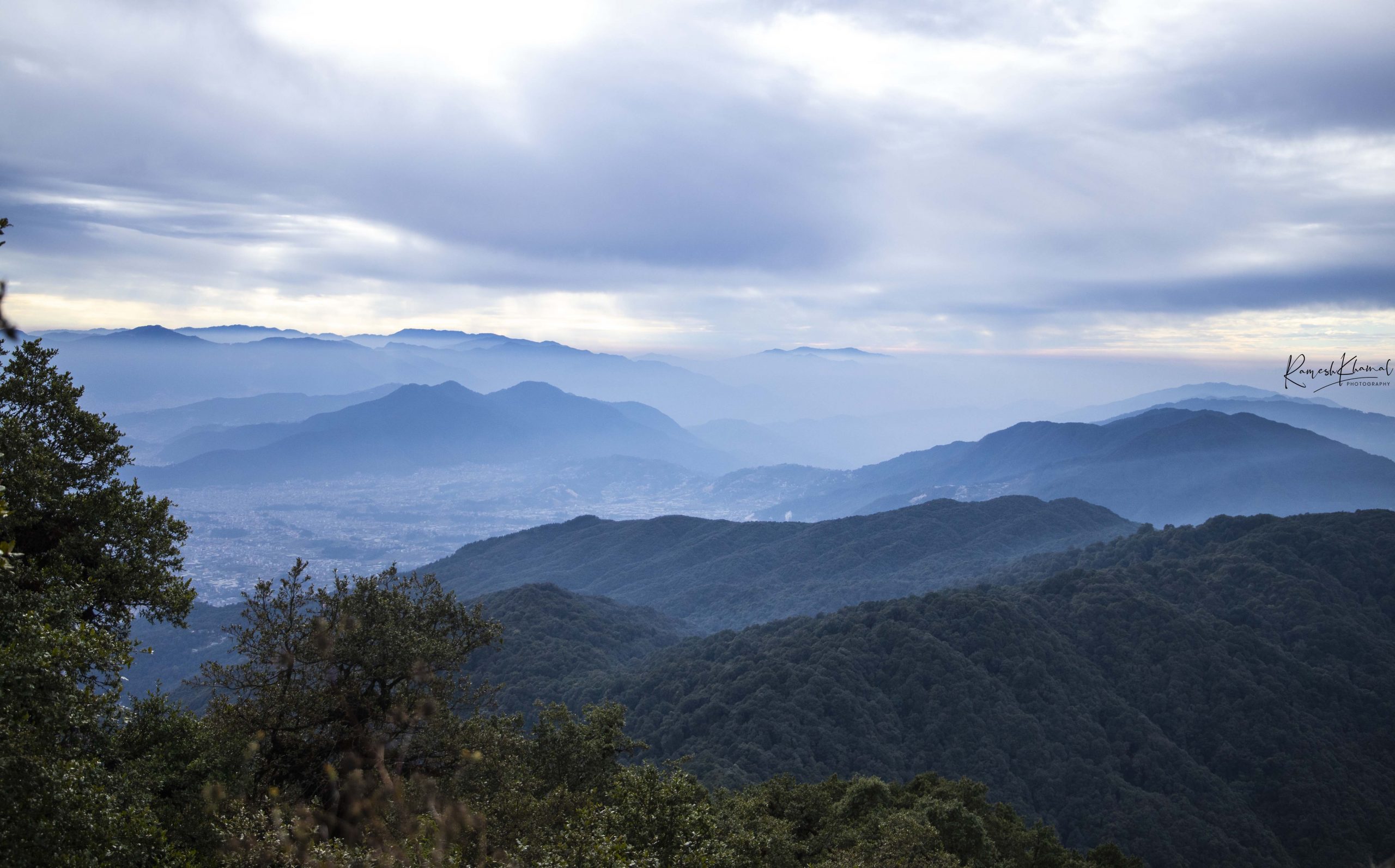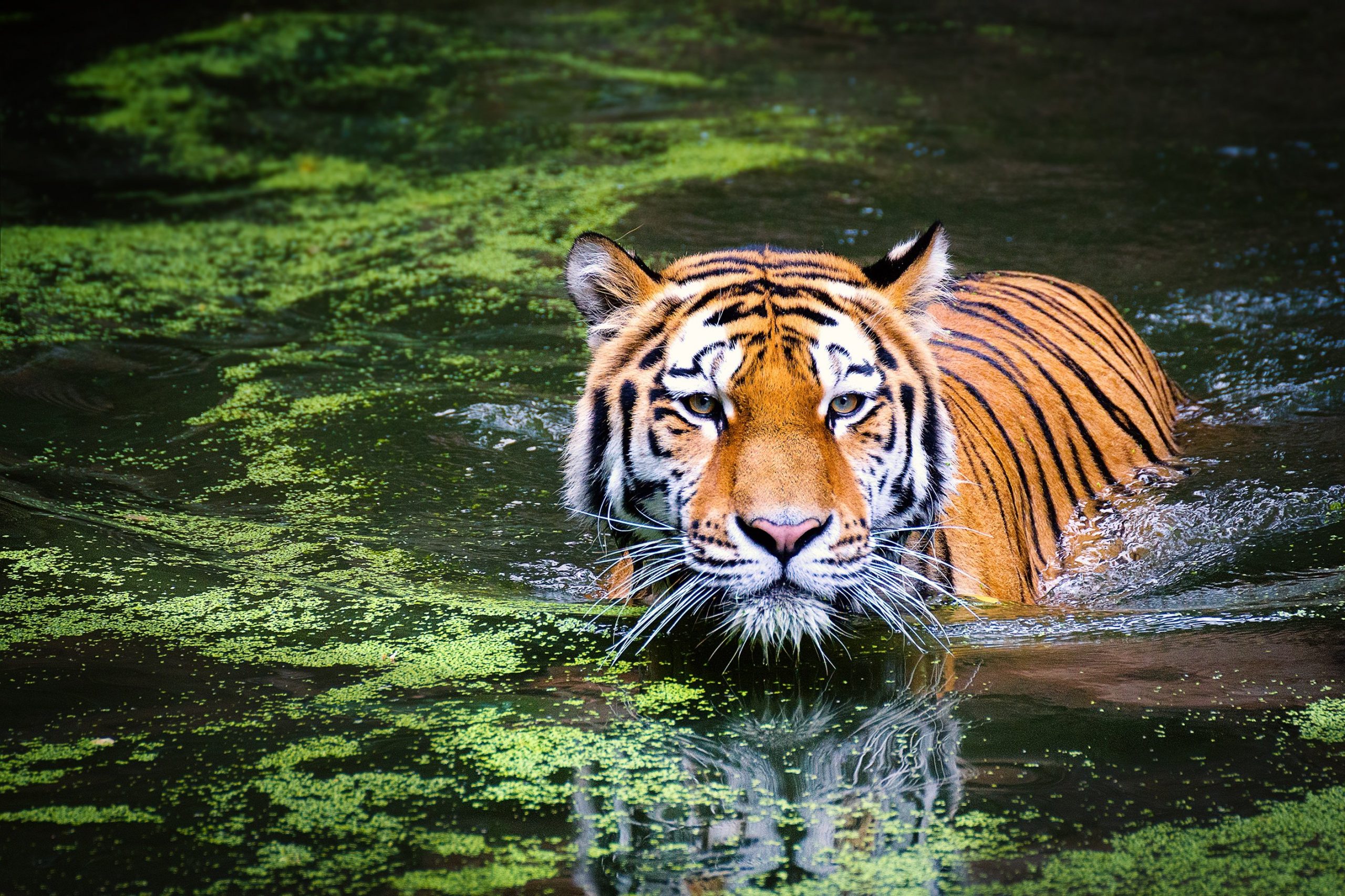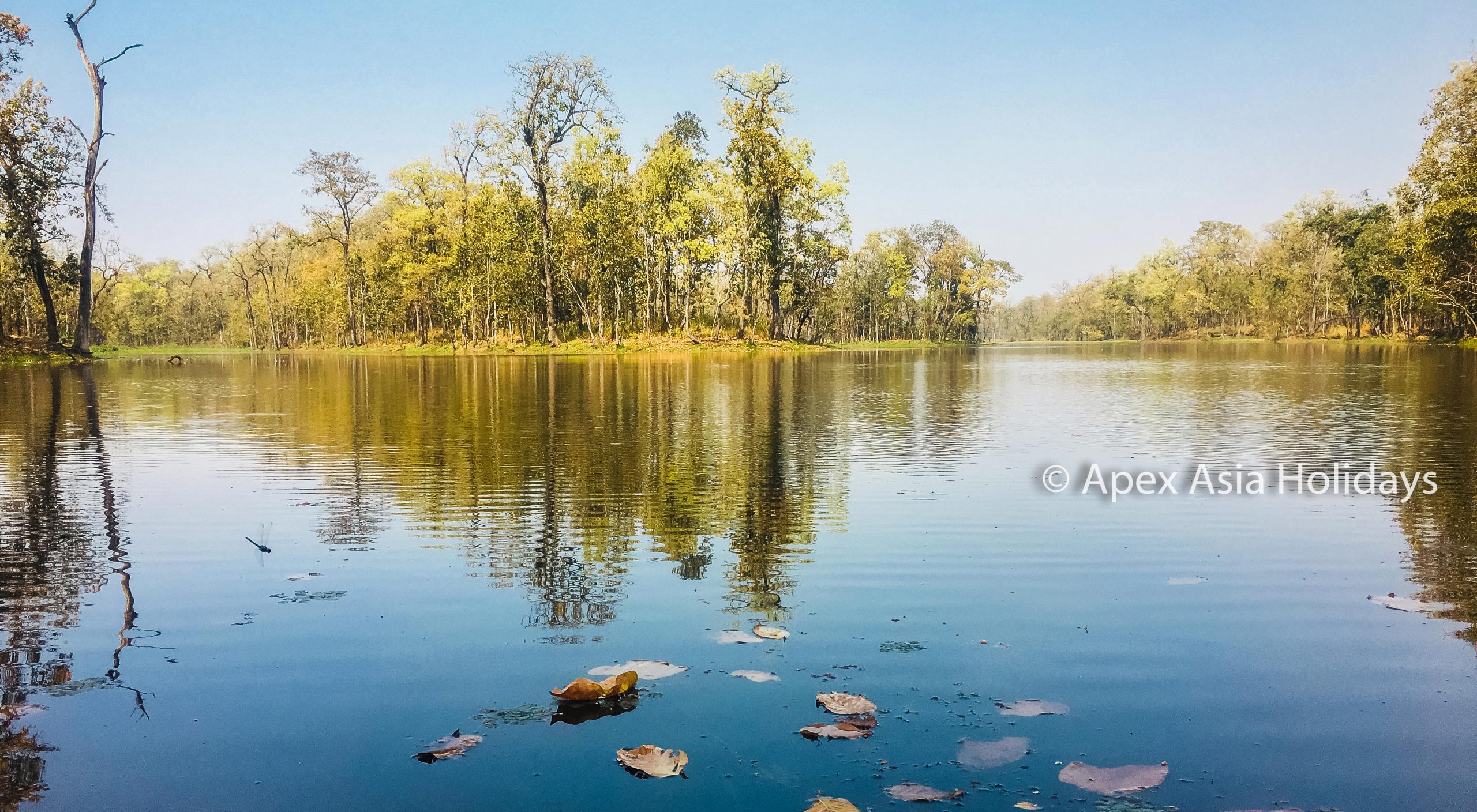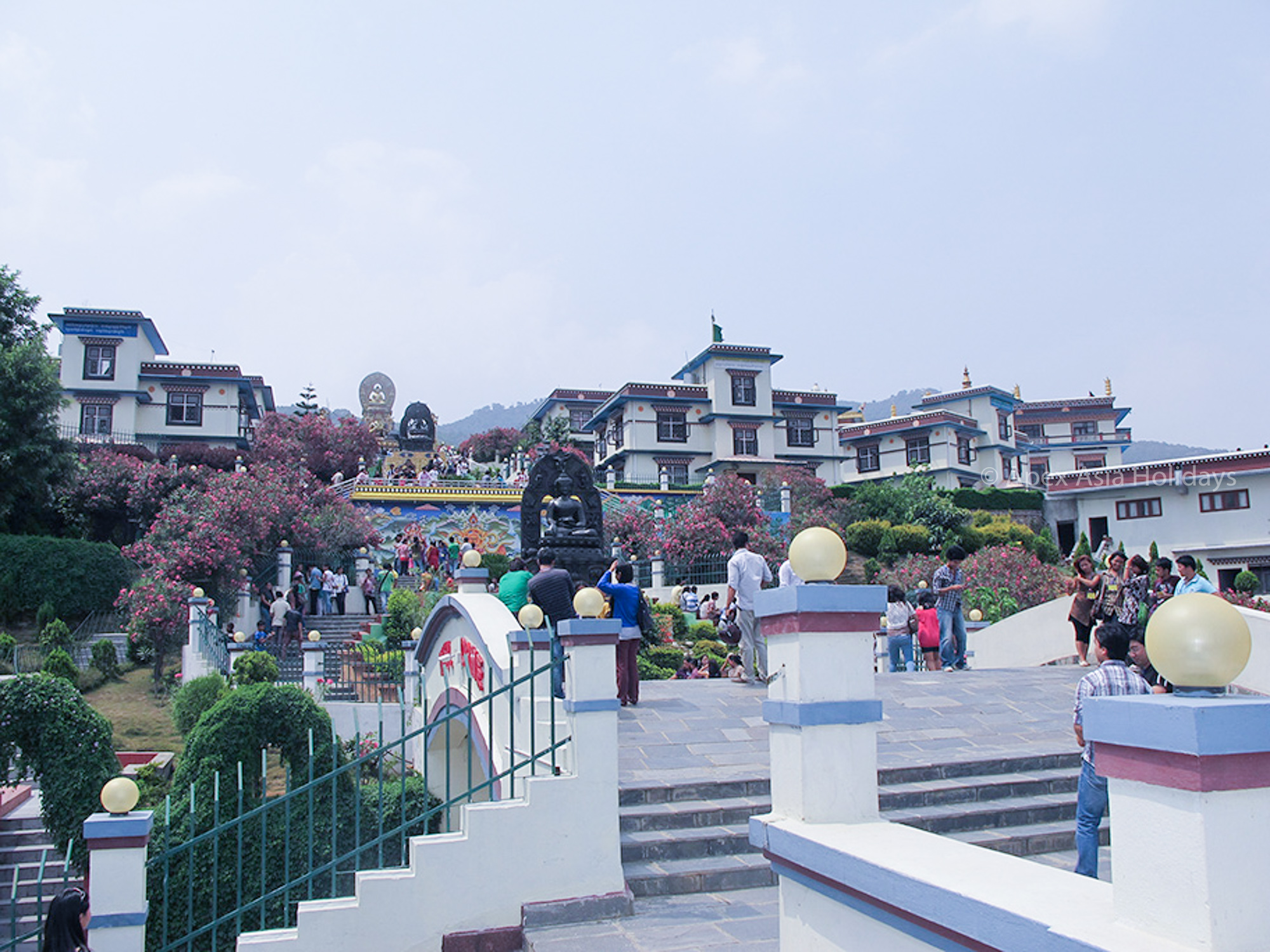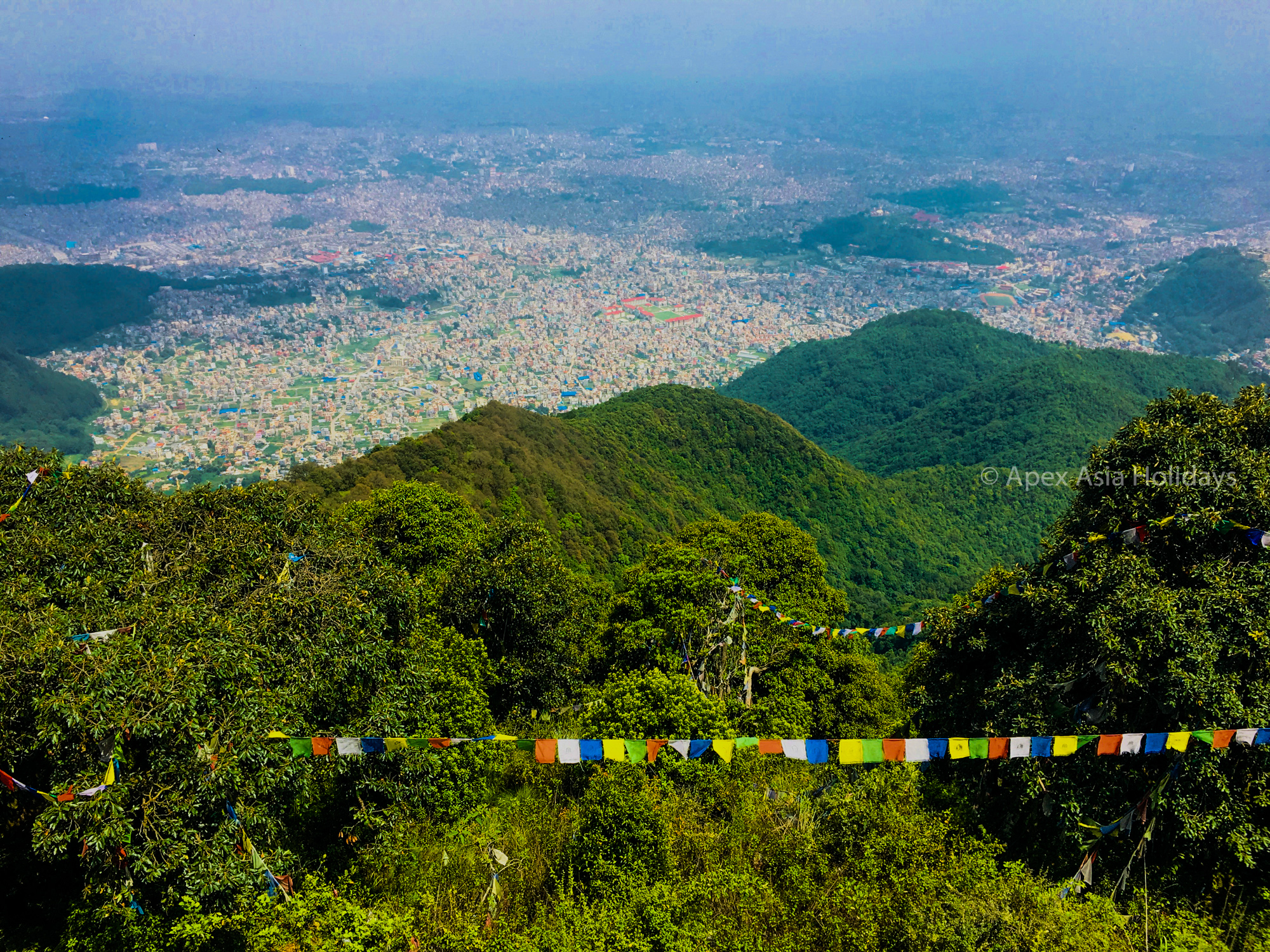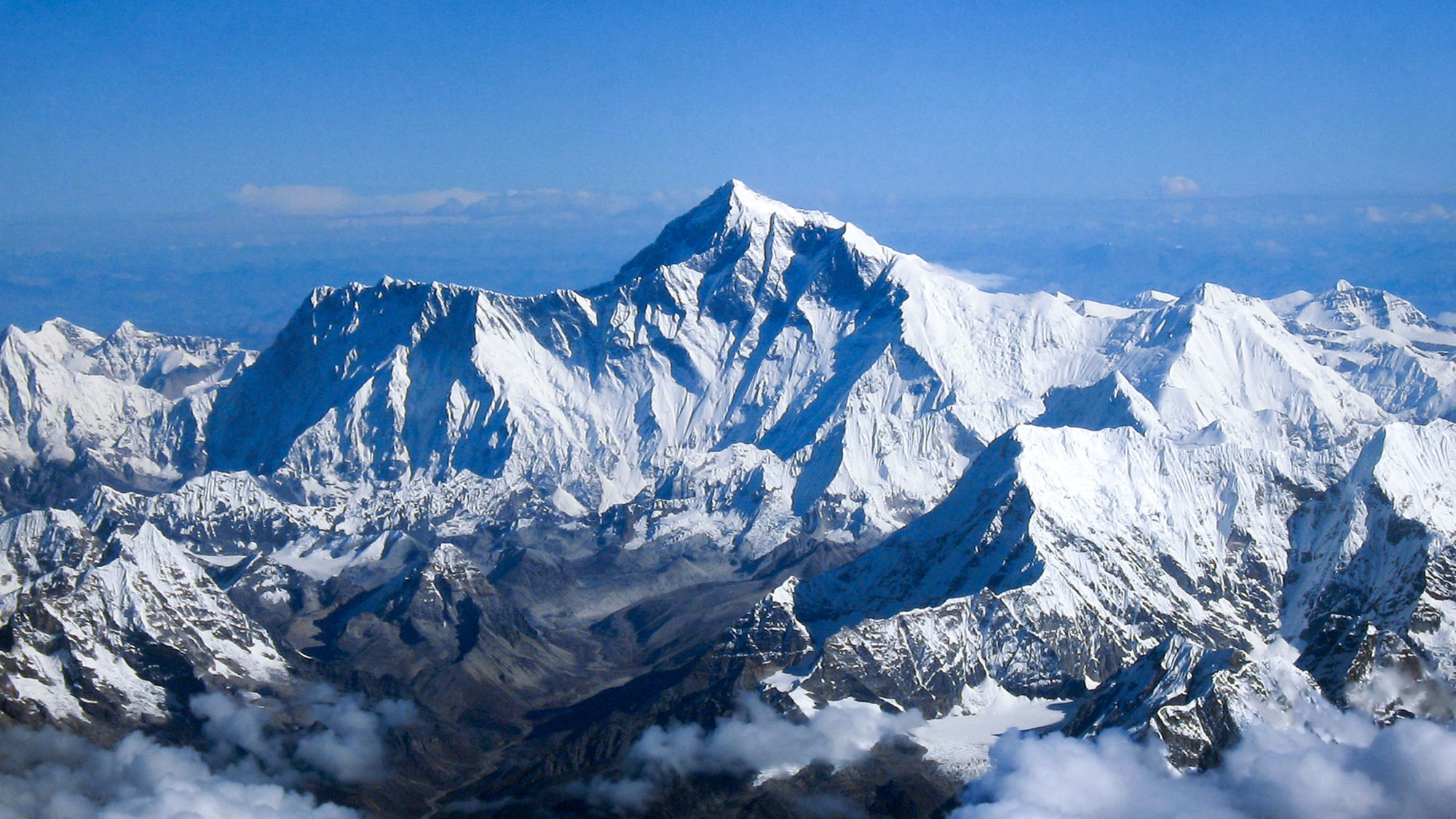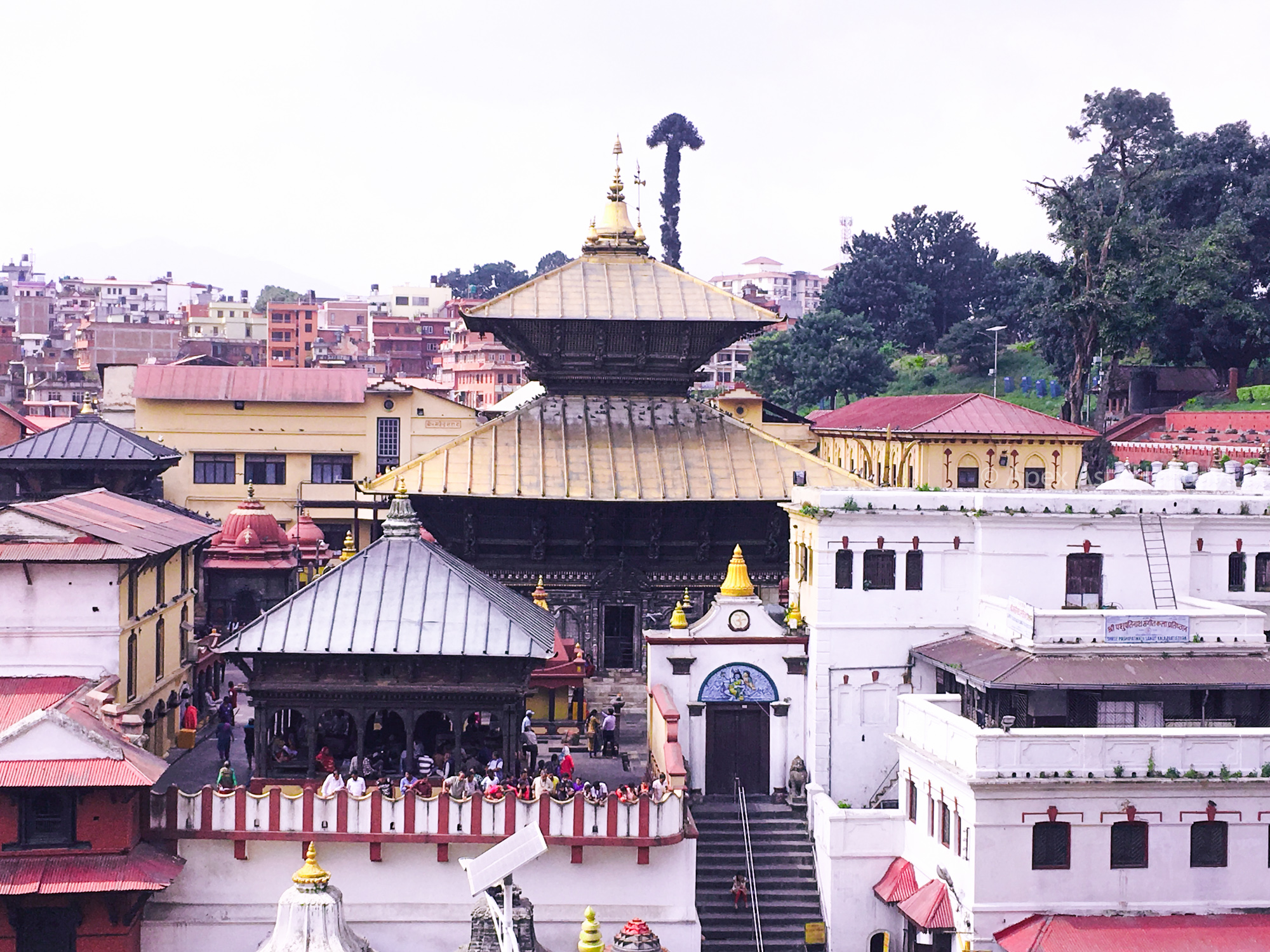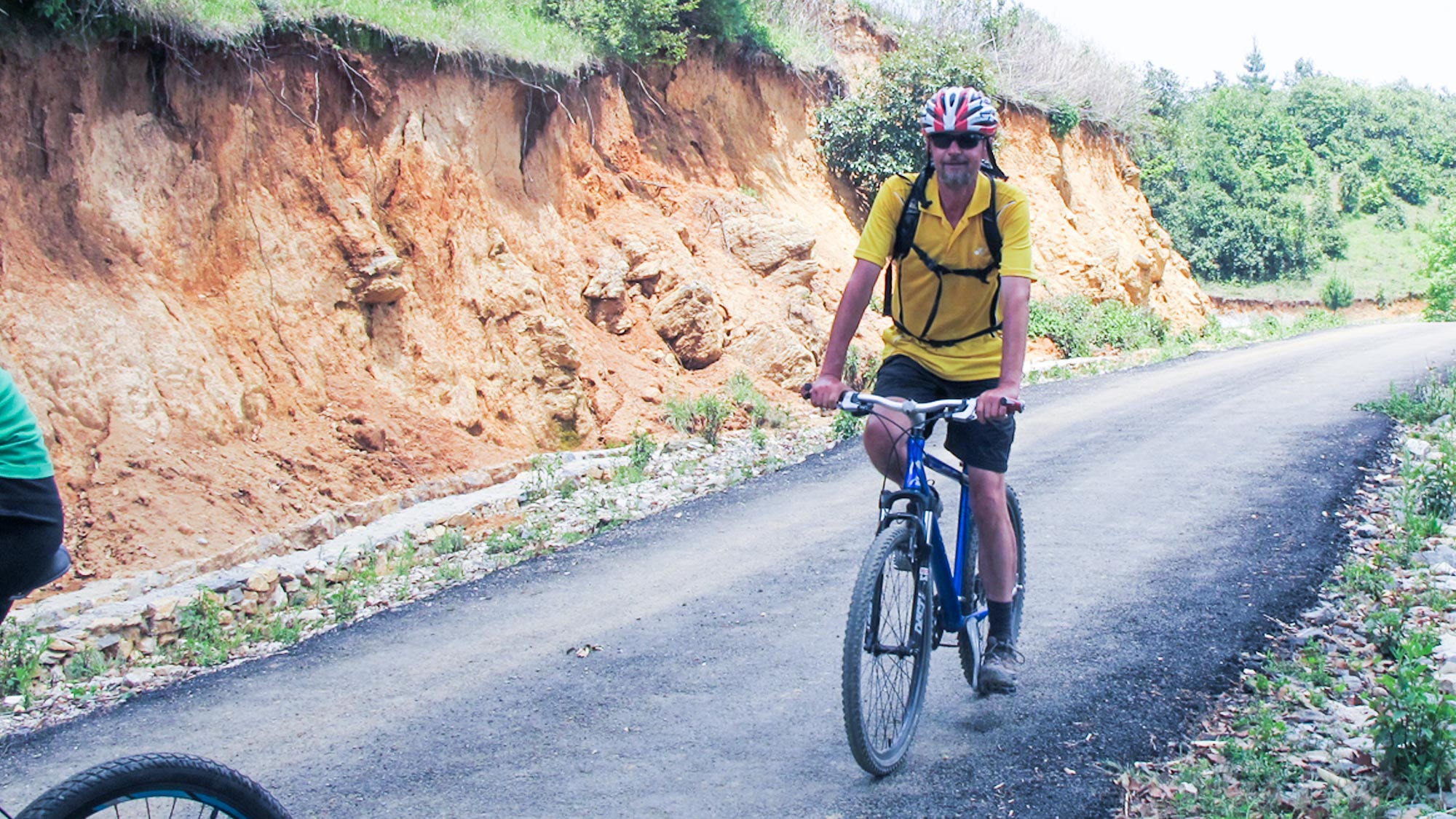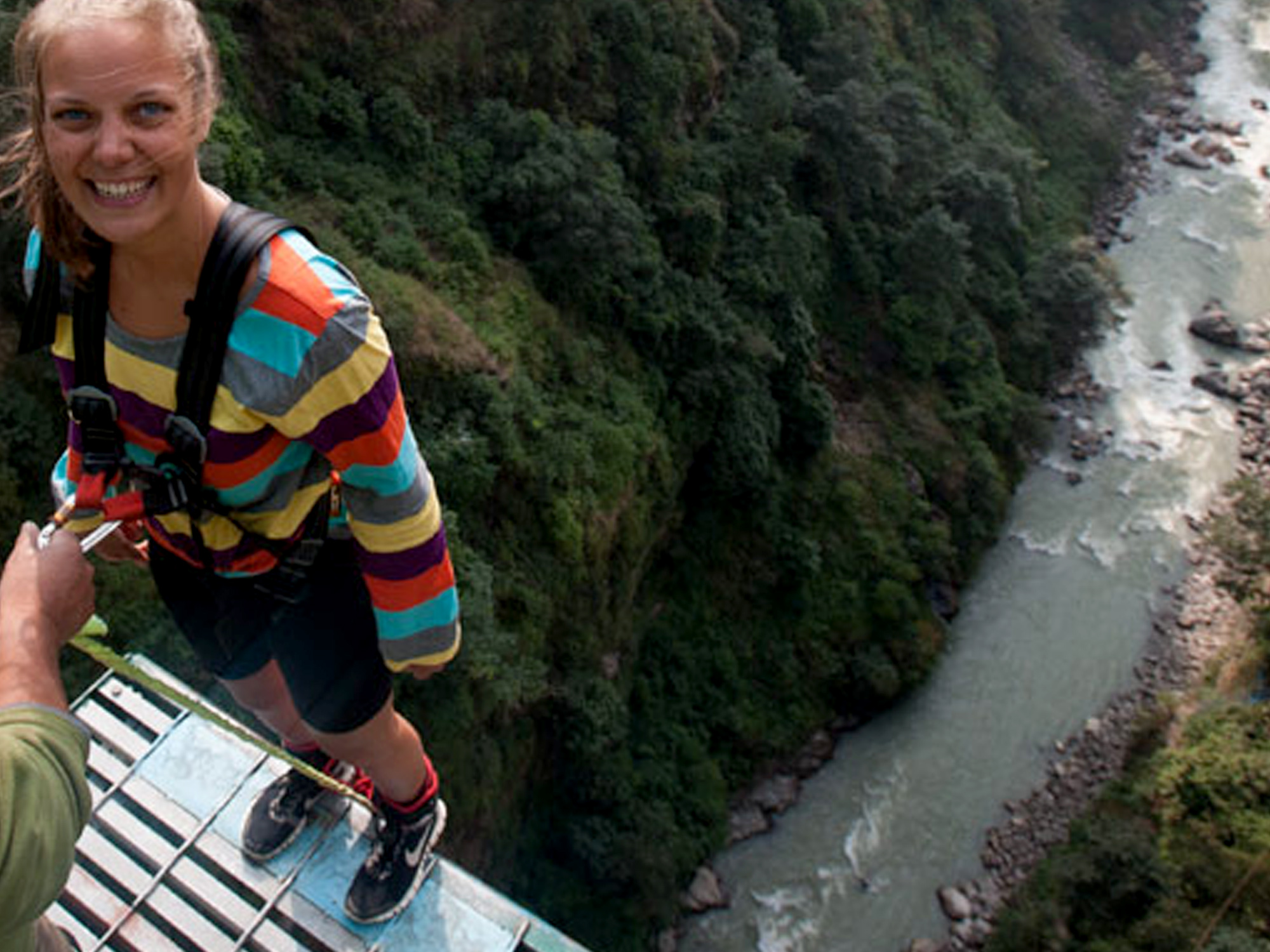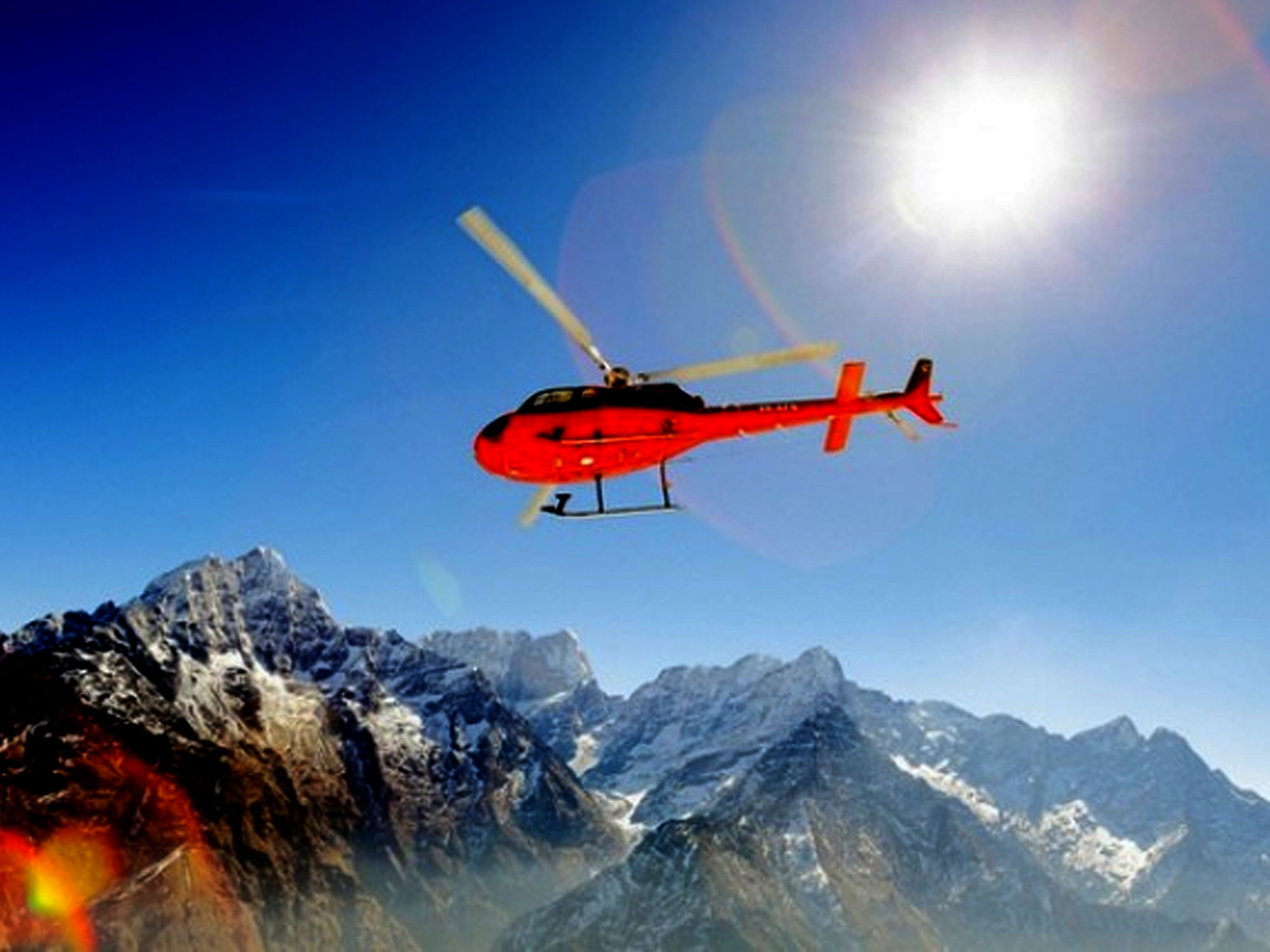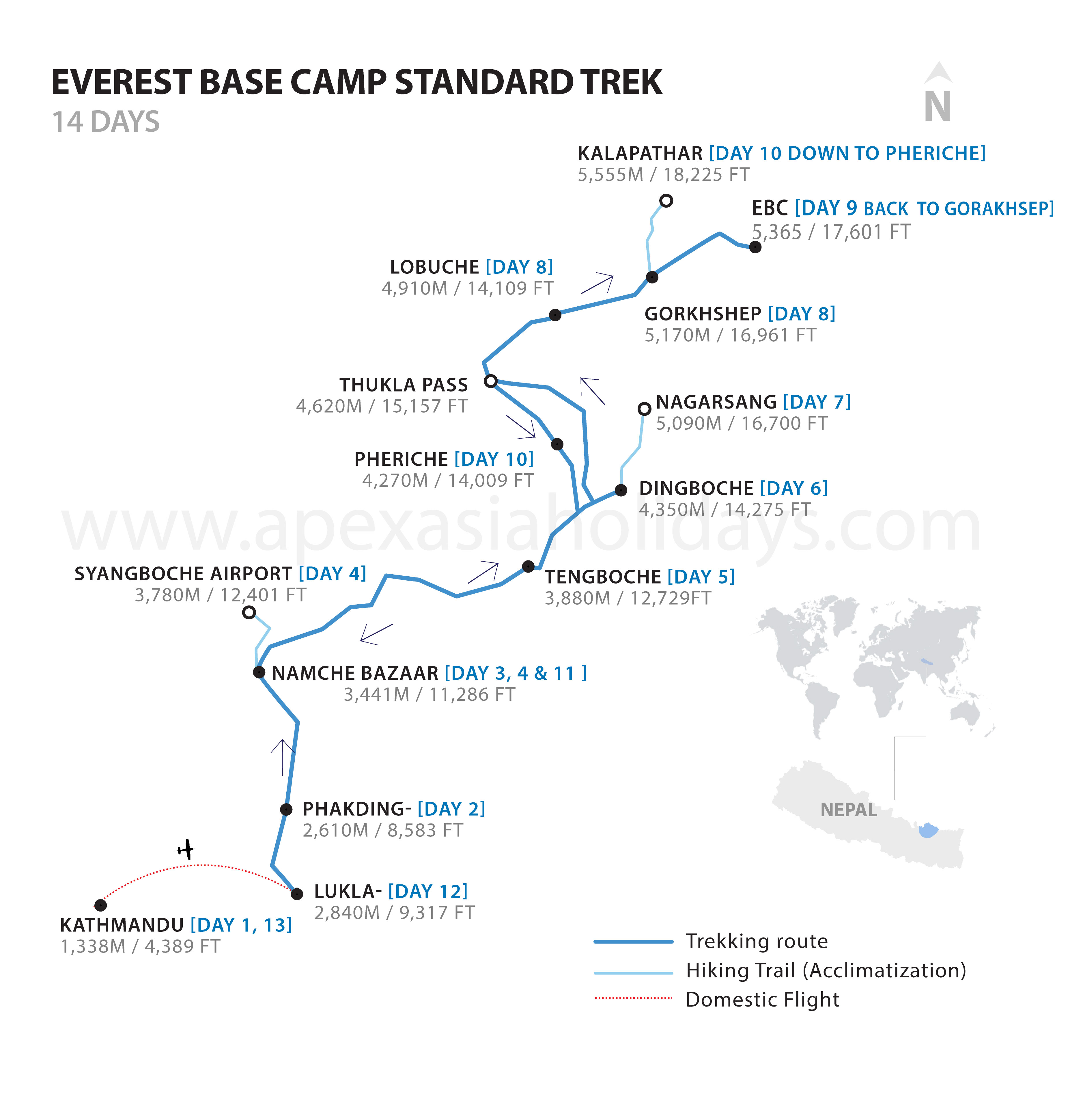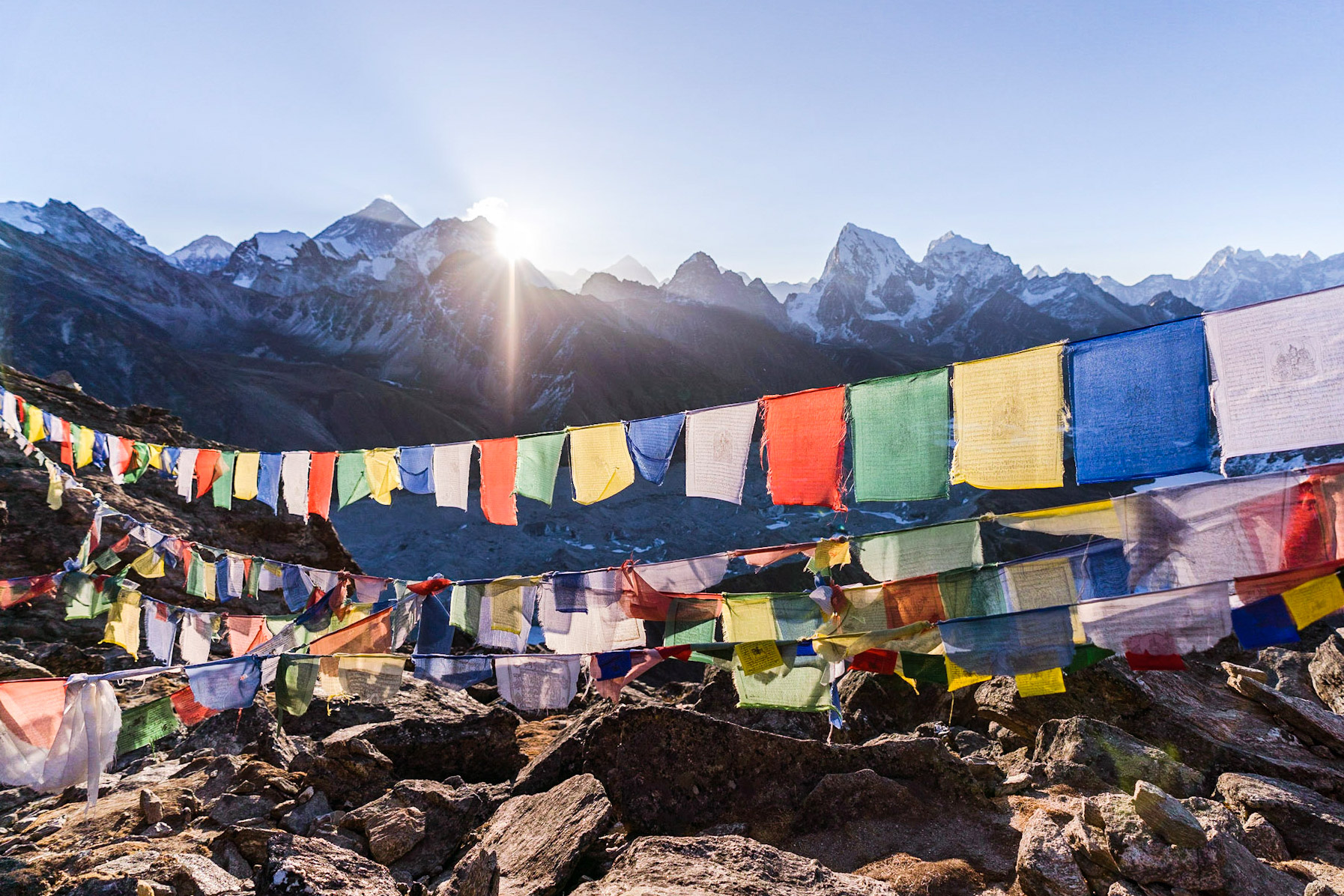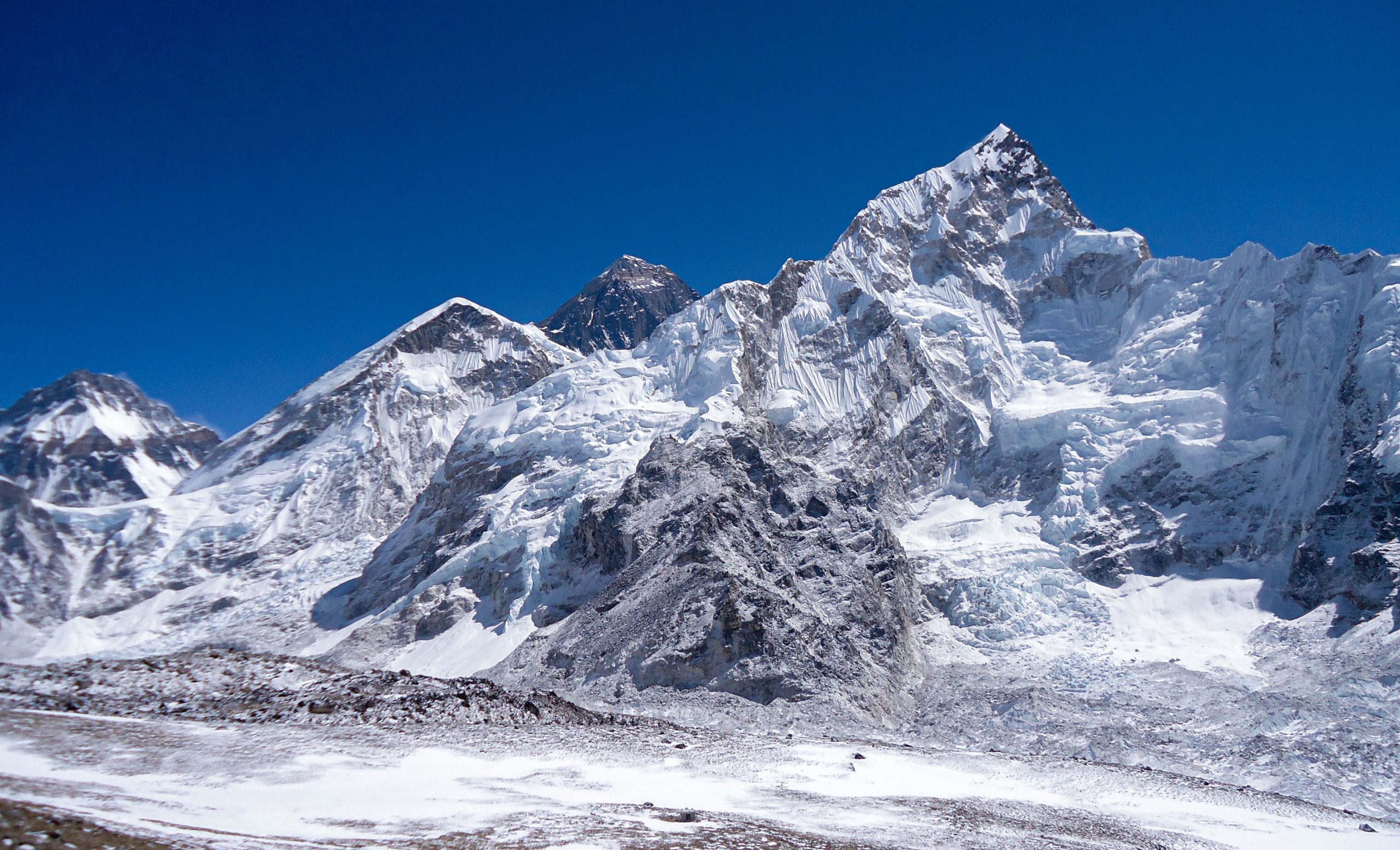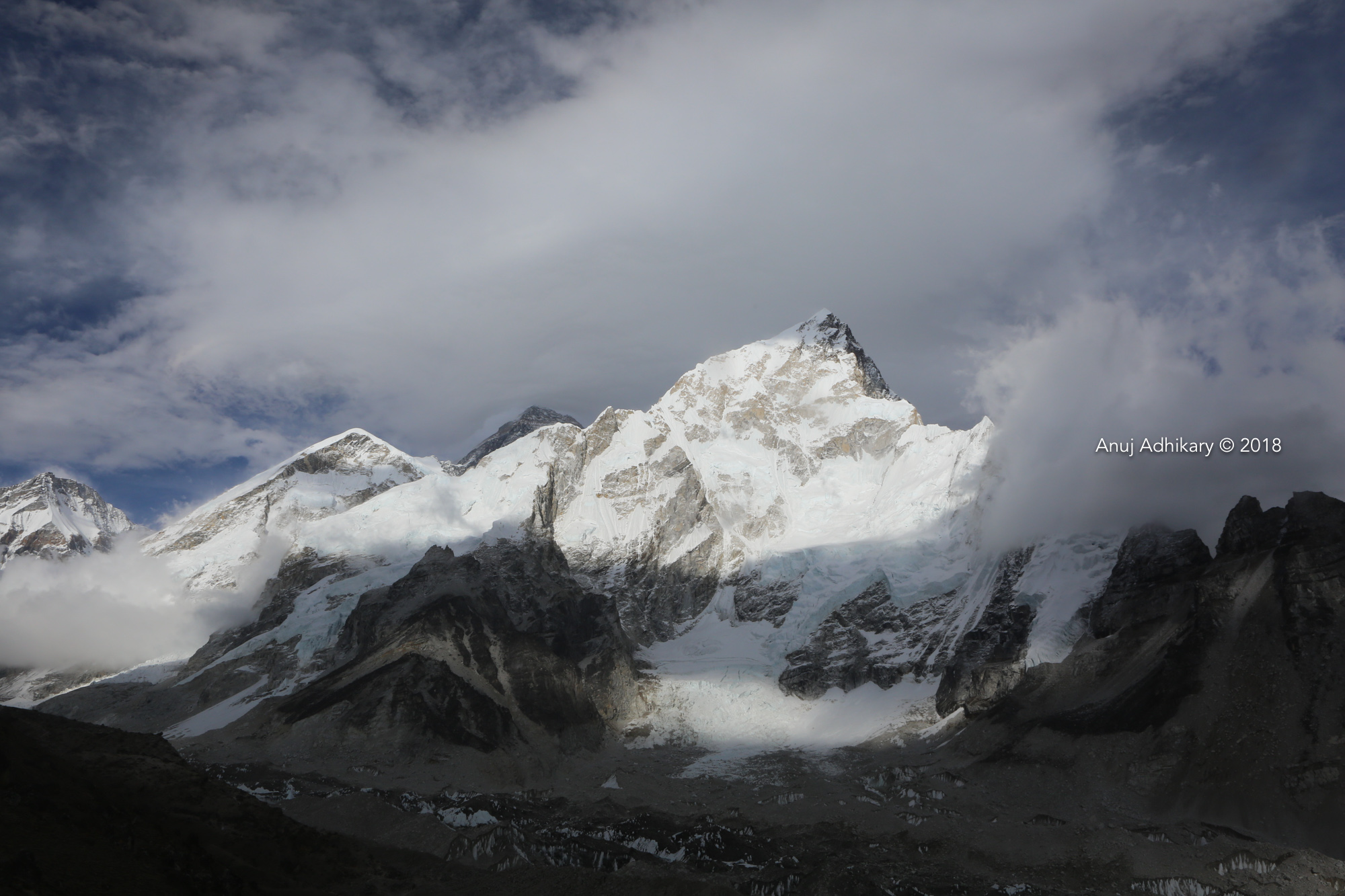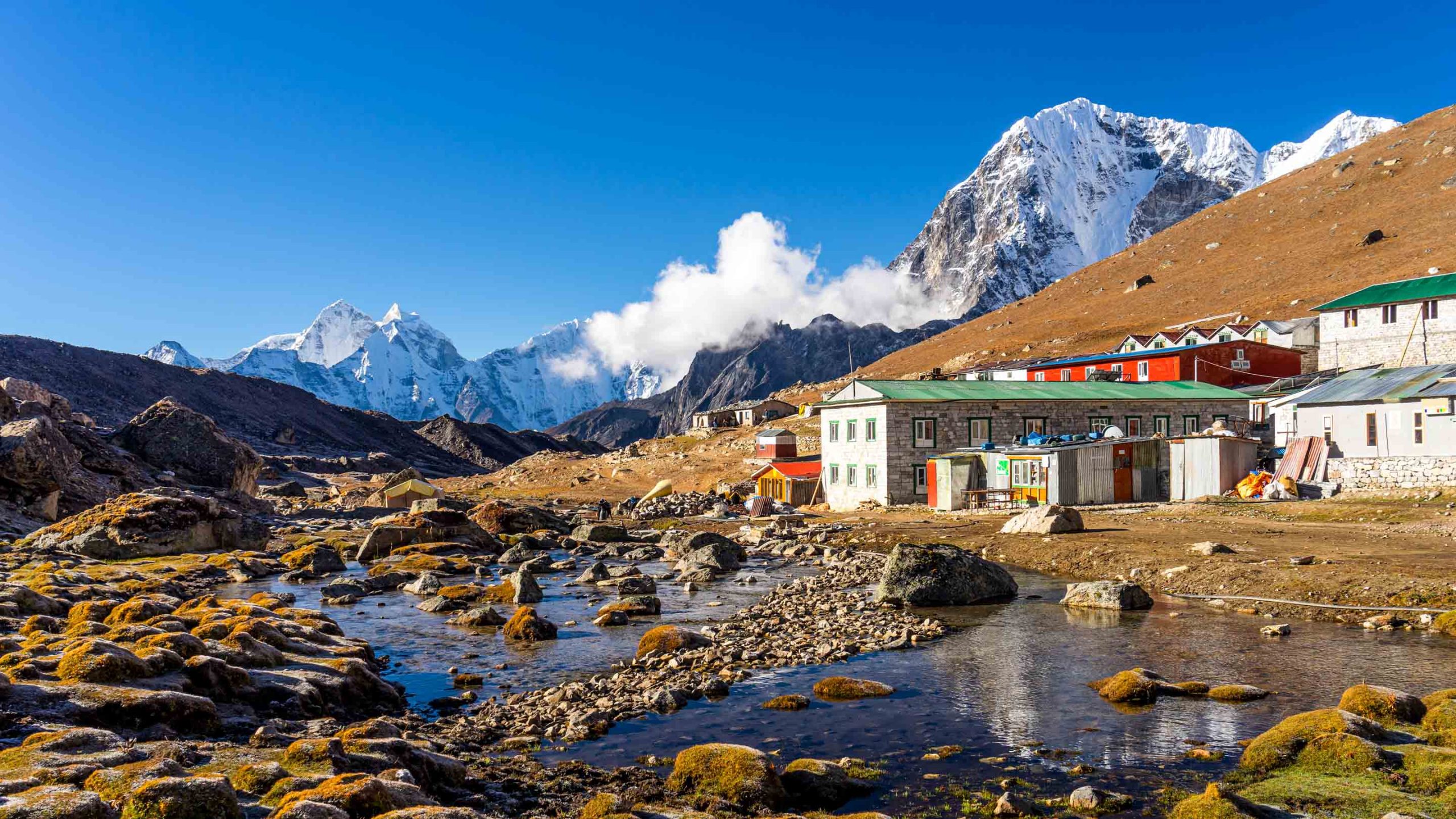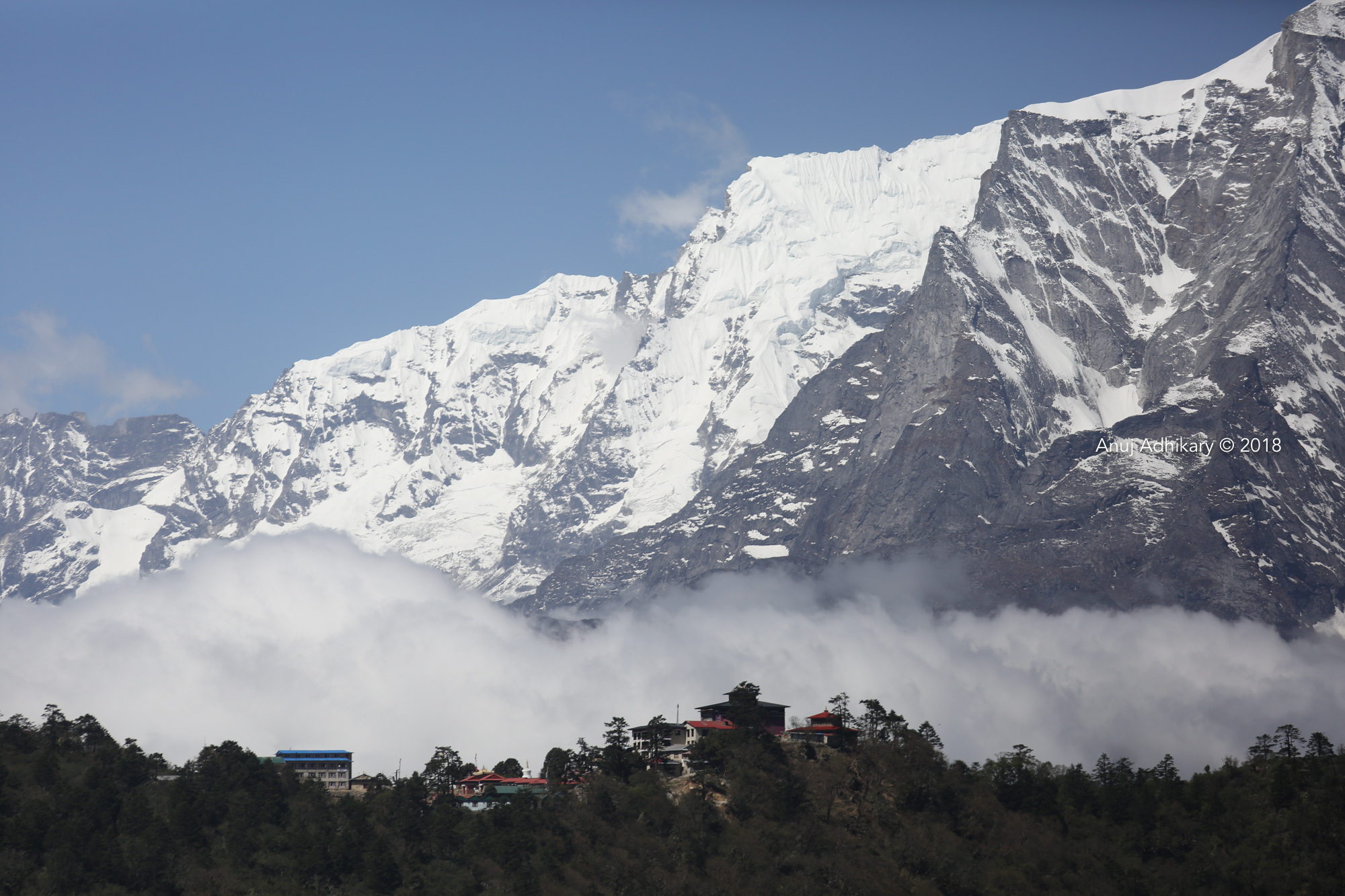
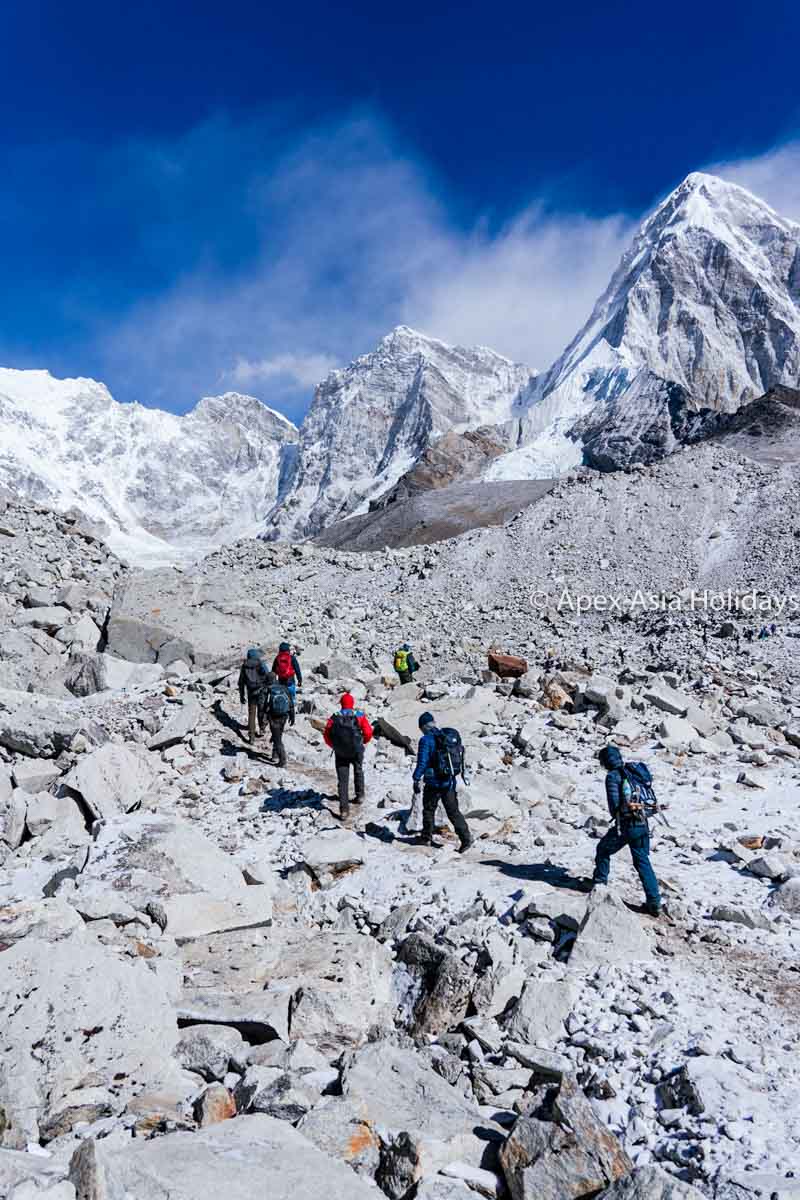
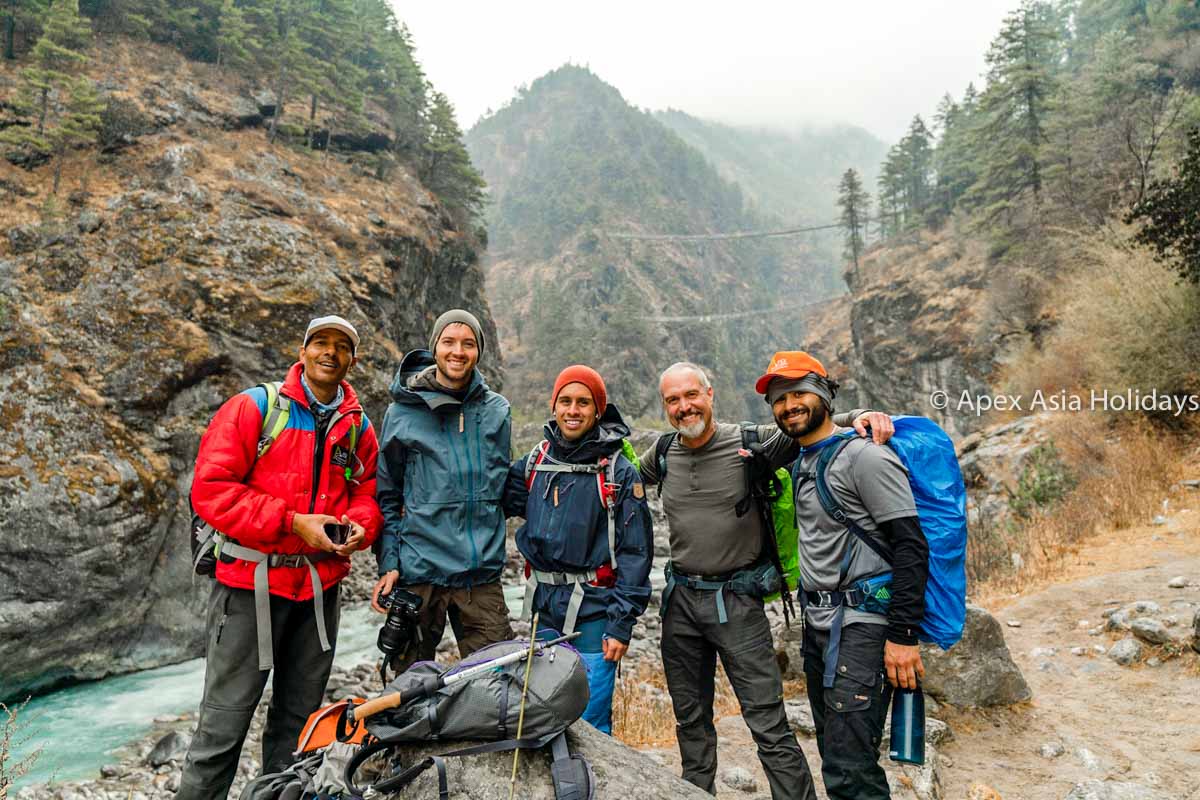
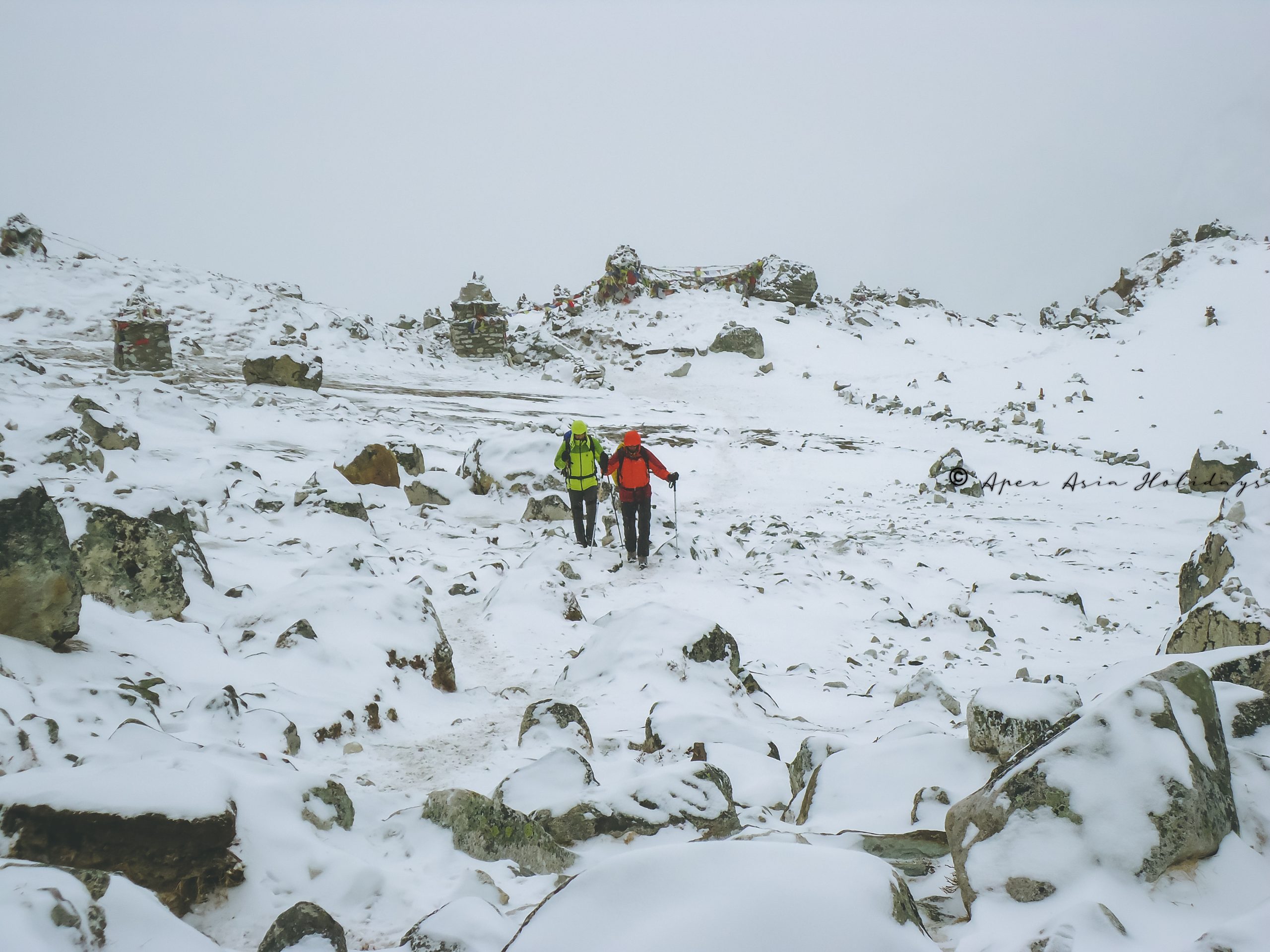
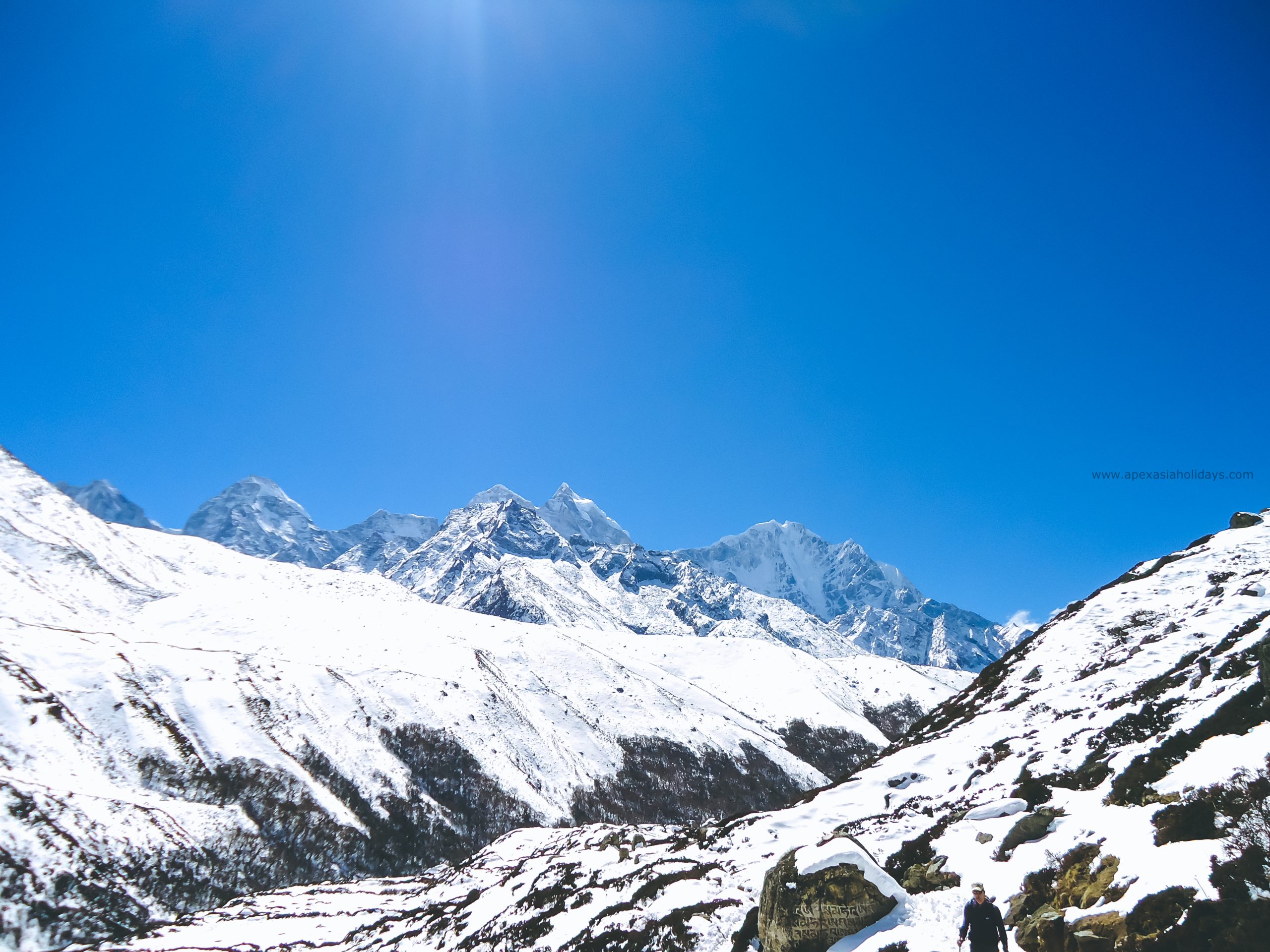
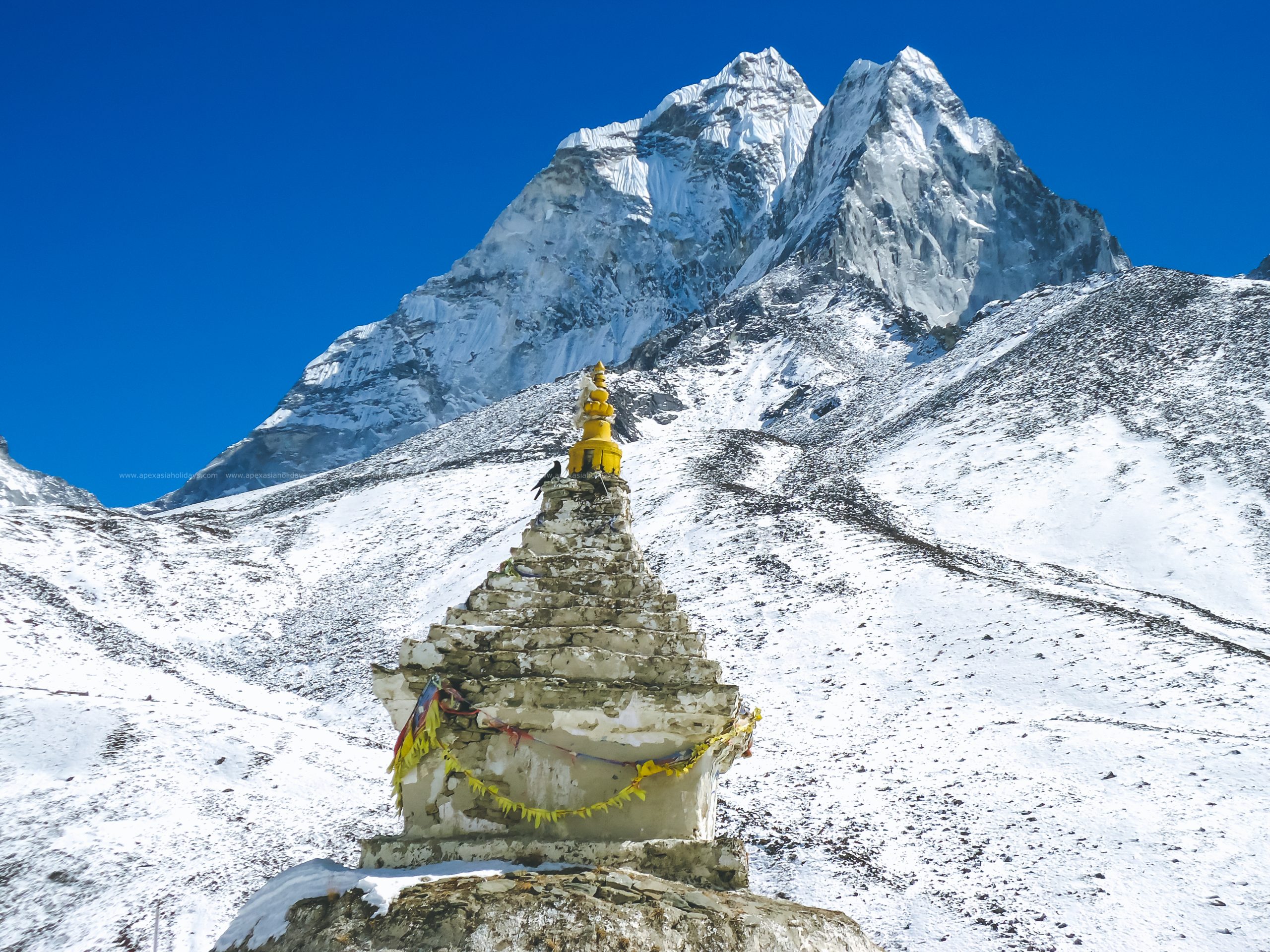
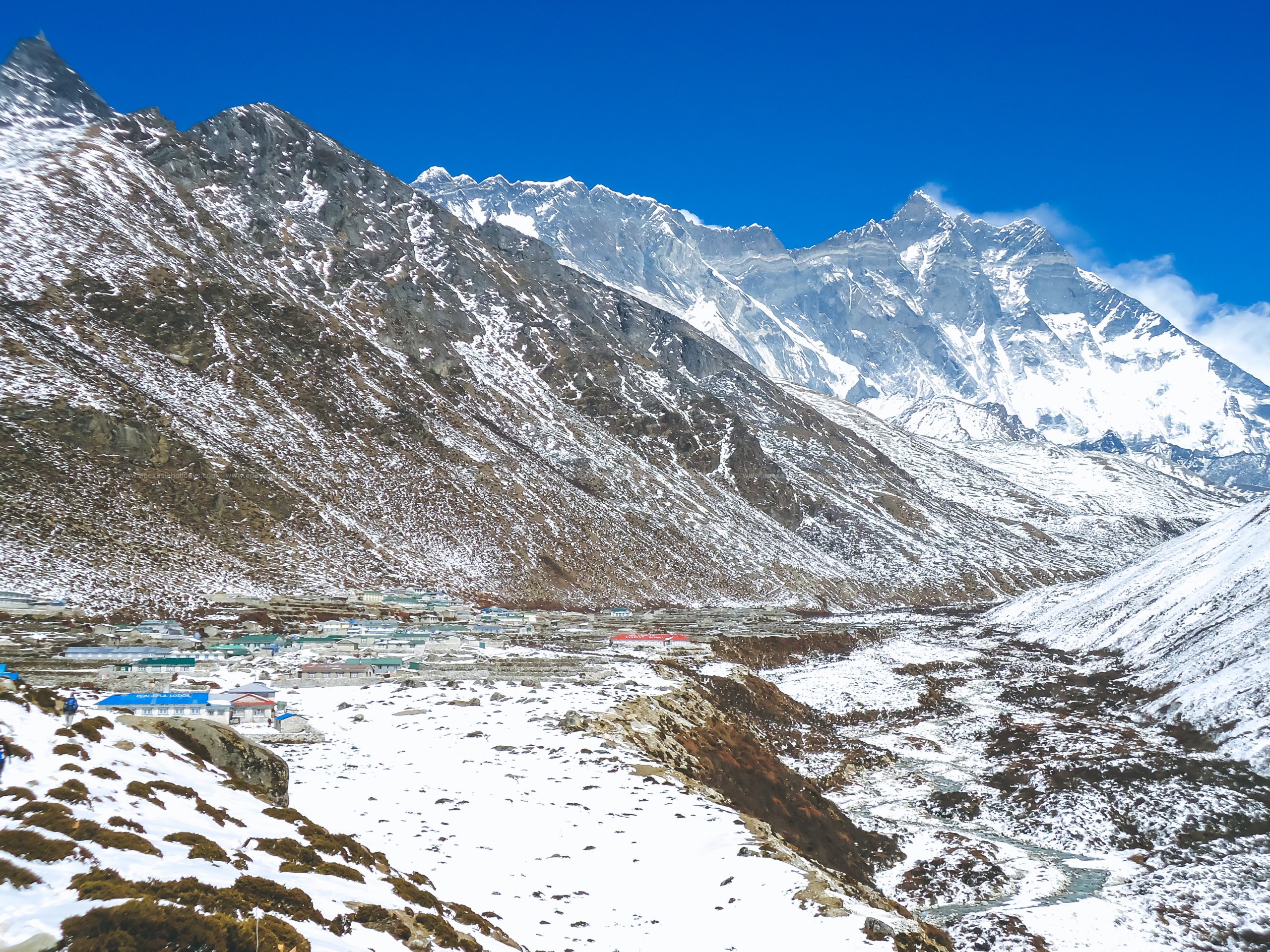
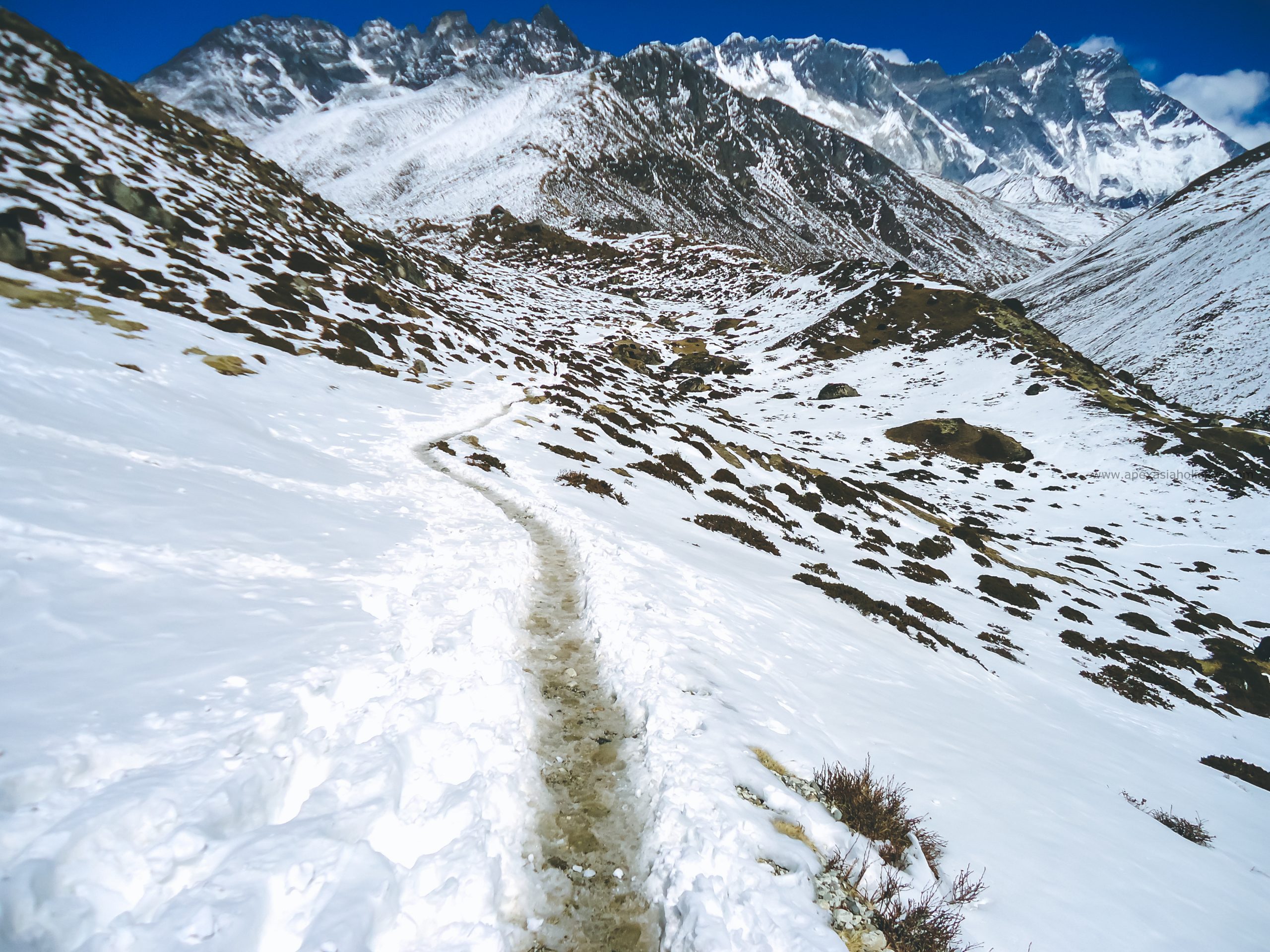
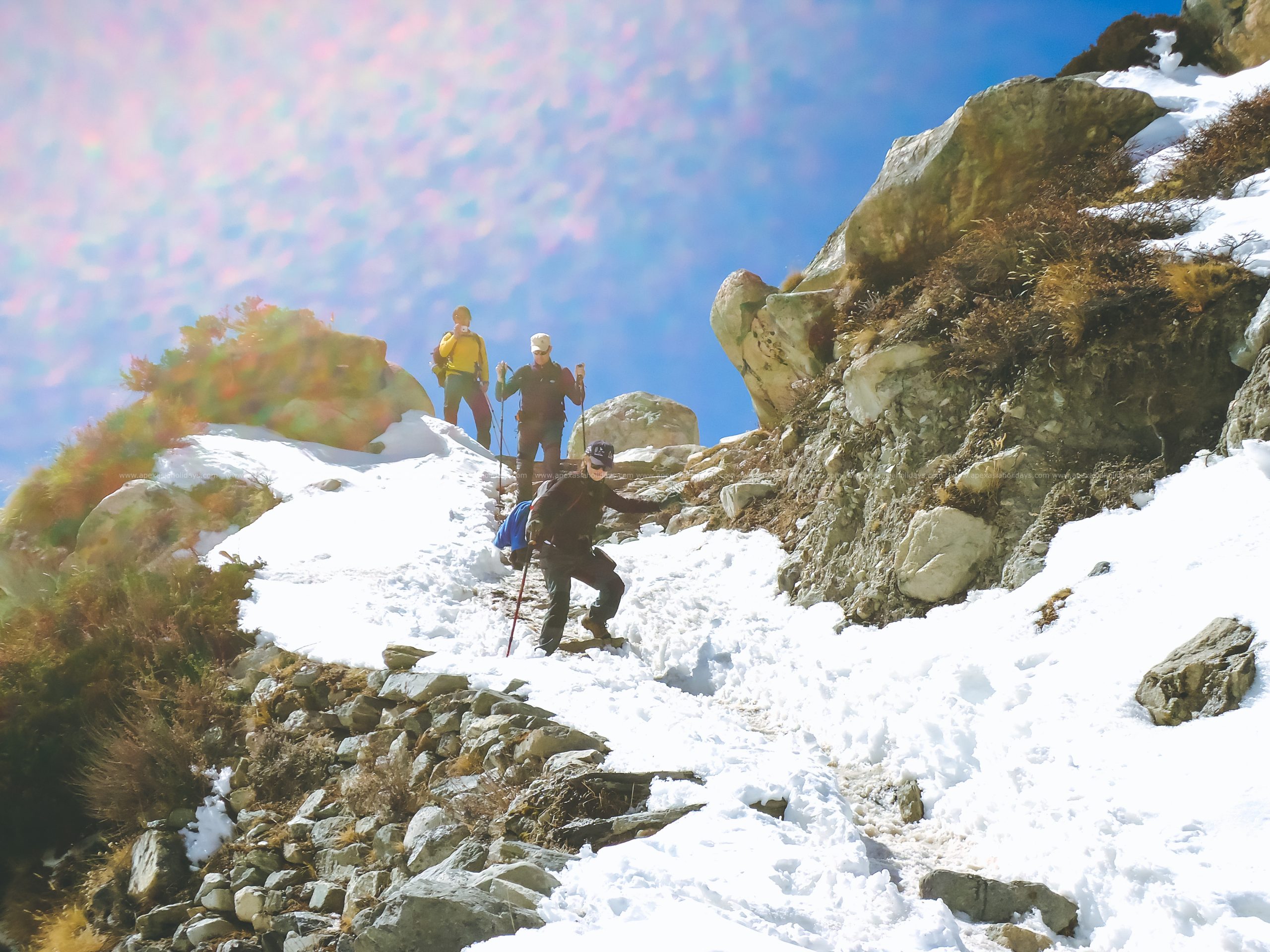
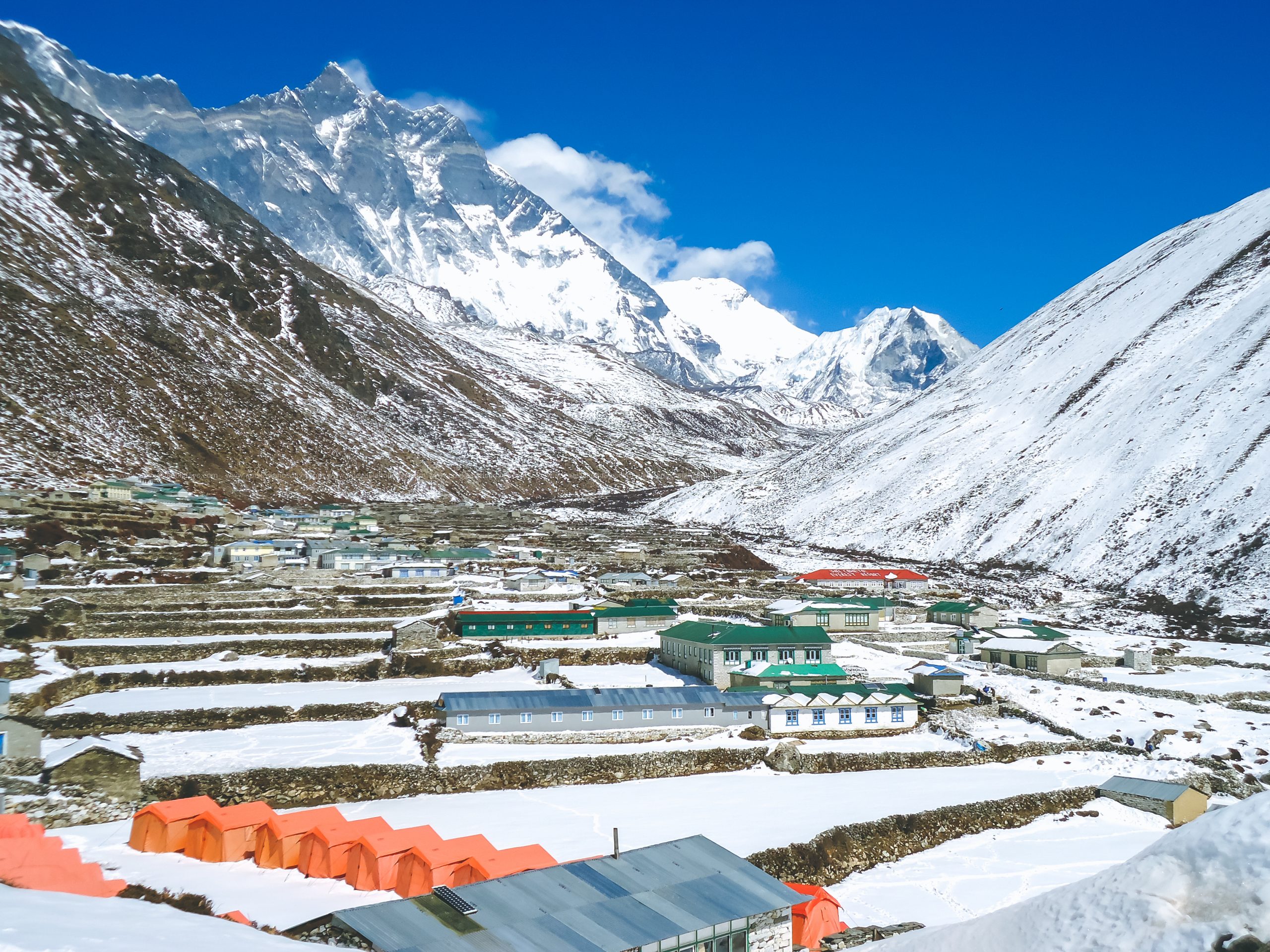
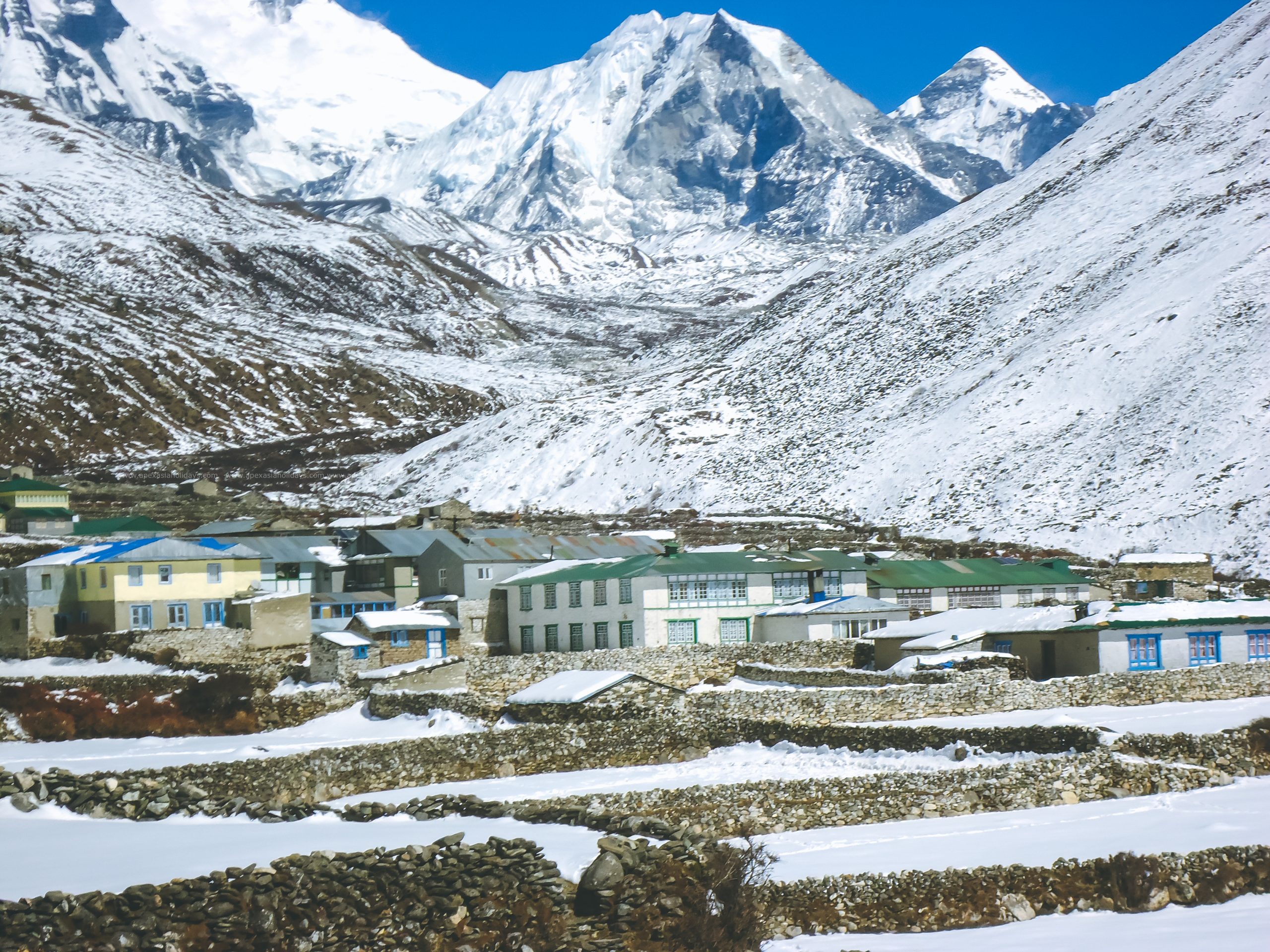
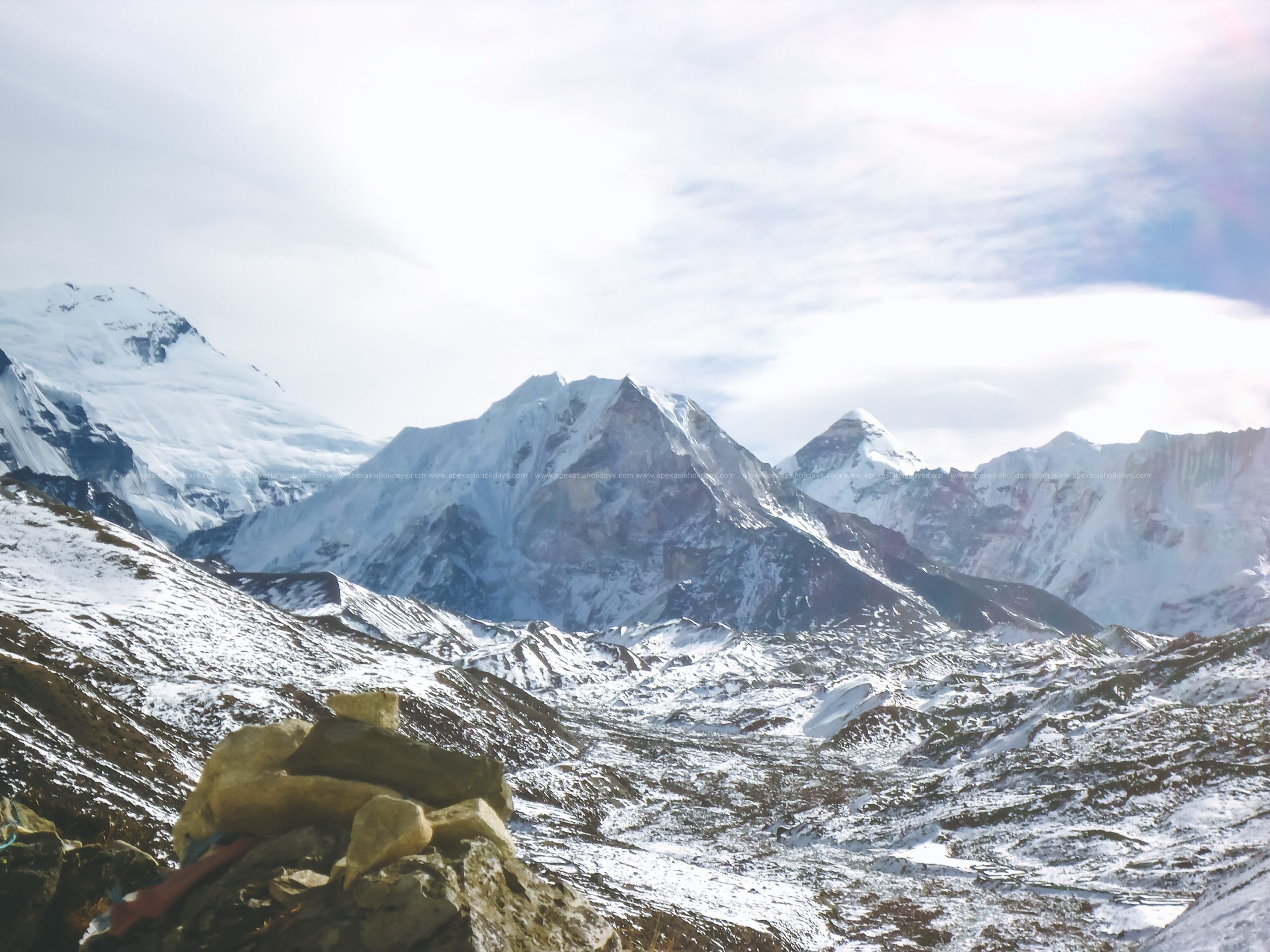
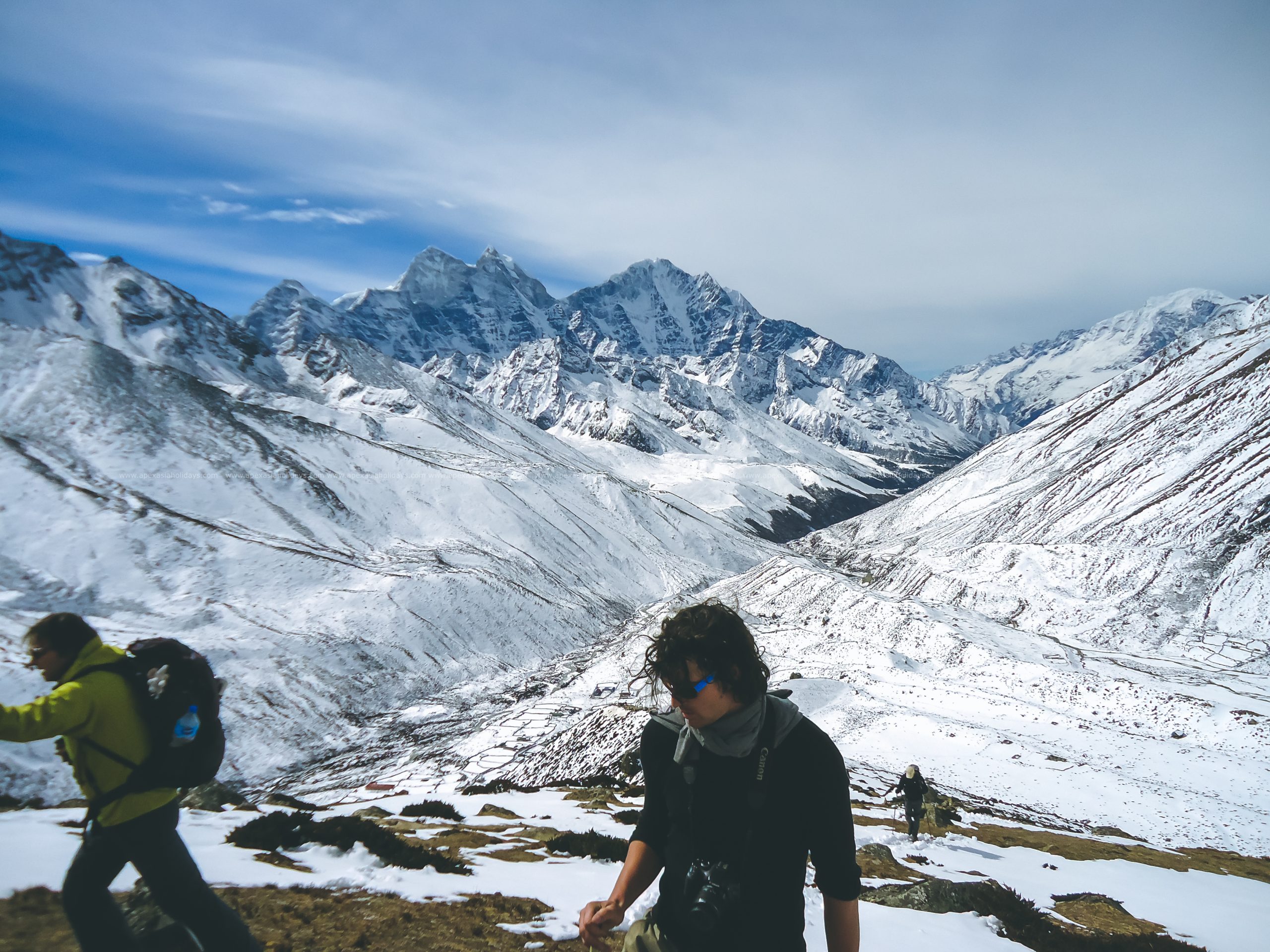
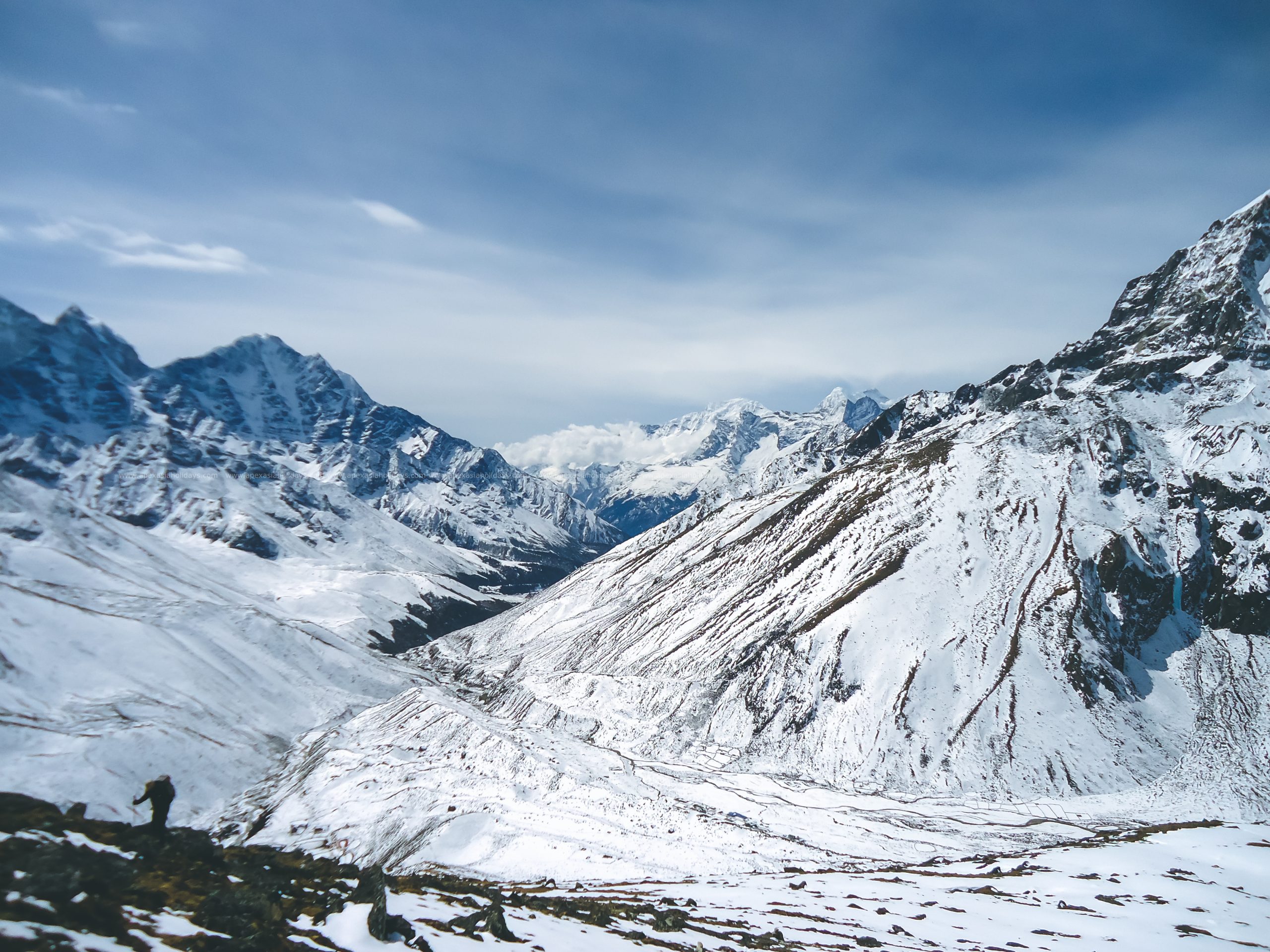
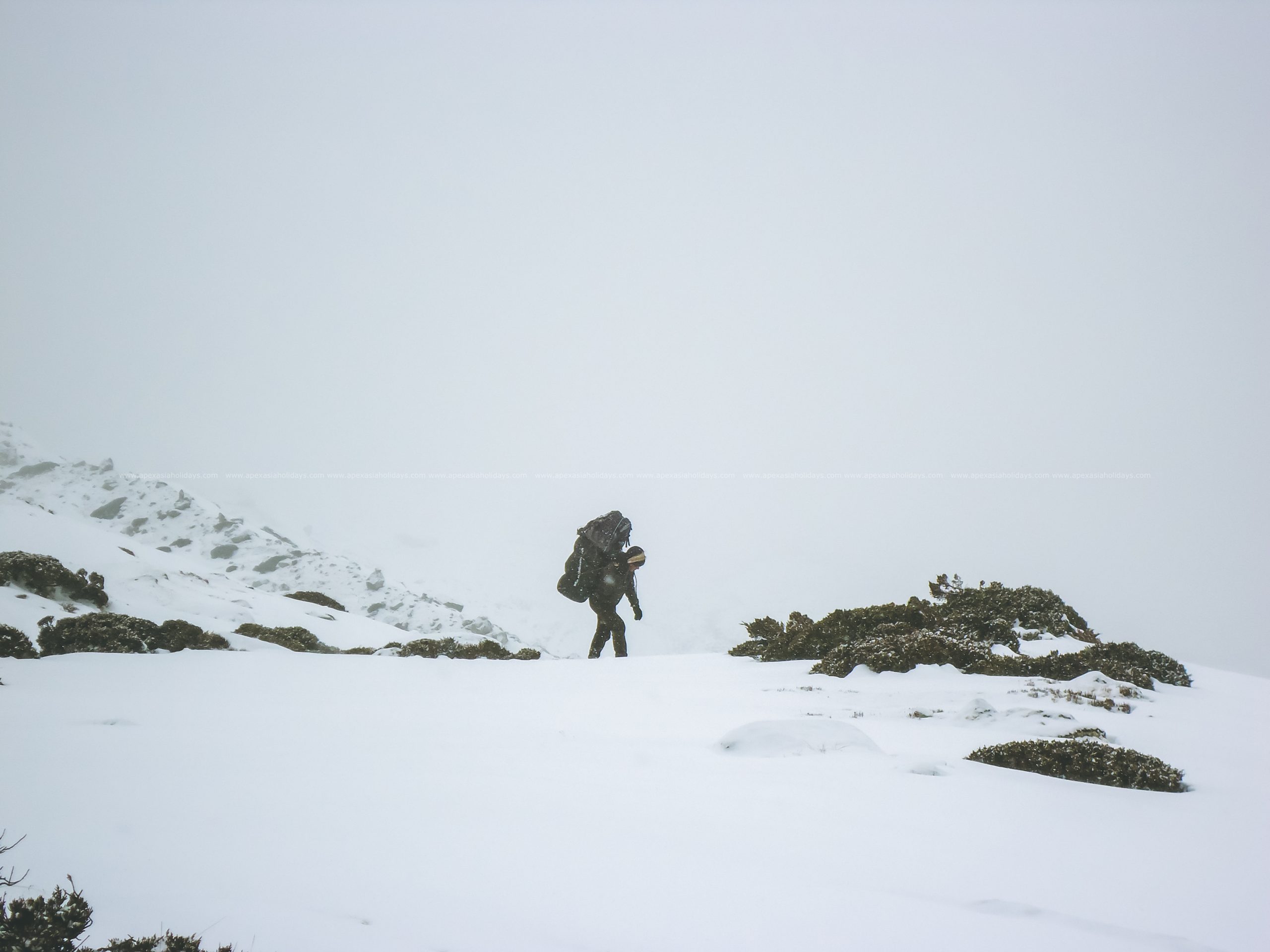
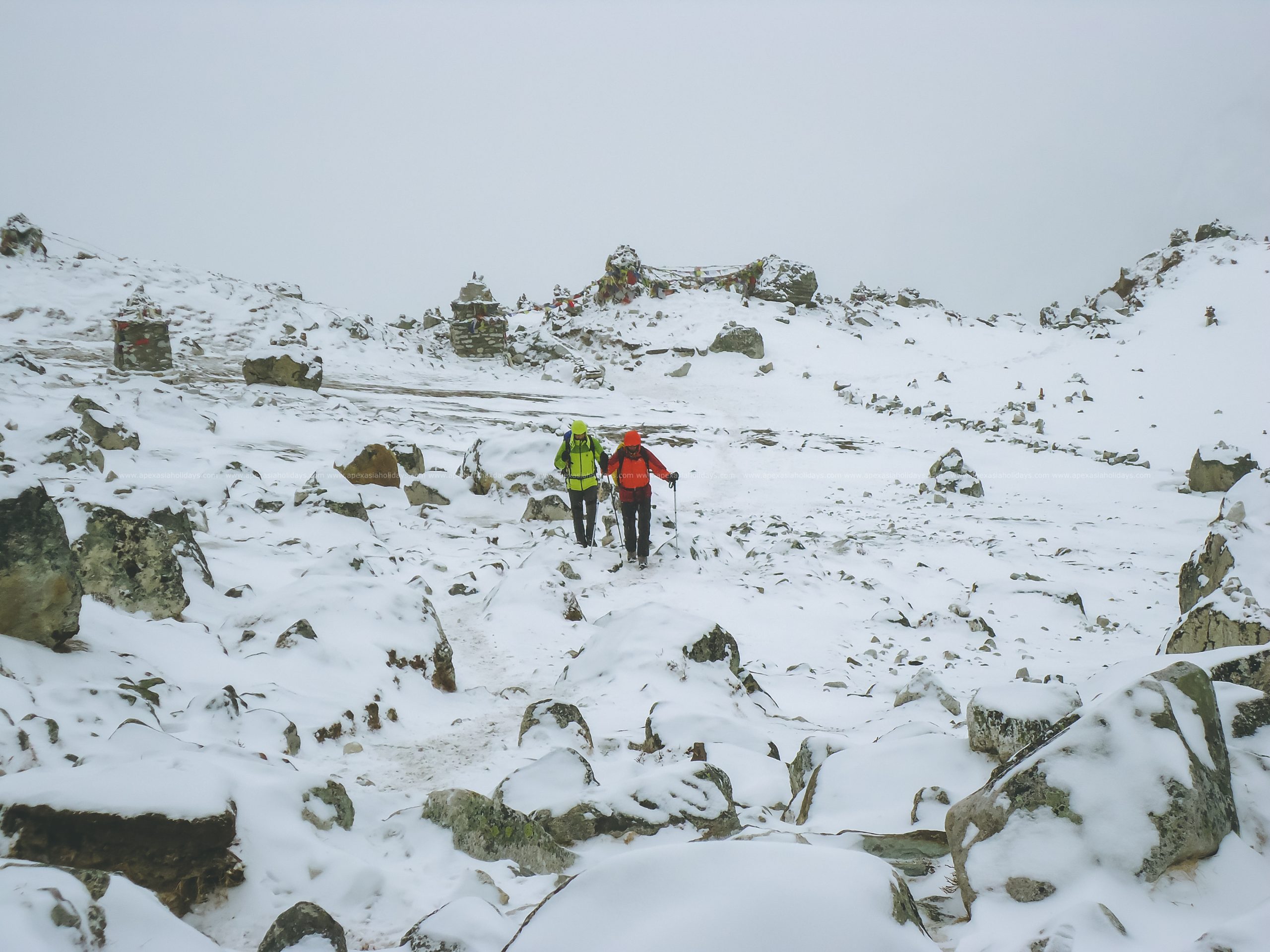
















Trip Overview
The world highest peak Mt. Everest and it’s base camp always attracting tourist since 1950s. Every year thousands of the traveler around the world visit the base camp (5360m). Everest Base Camp Trek is being buzzing phrase in the trekkers. We traverse through the Sherpa heartland to the foot of Mt. Everest, crossing cultivated fields, glaciers and small villages of Sherpa. Walk by the Dudh Koshi river before climbing up to Namche Bazaar (3441m). Tengboche Monastery is a heaven for photographers and is the great highlight of the trek; it lies in the backdrop of Mt. Amadablam, Mt Everest, Mt. Lhotse, and other huge mountains. Climbing up Kalapatthar gives us breathtaking views of Mt. Everest along with other Himalayan giants. Kalapathar is another hill which is remarkably famous for sunrise and sunset over the Himalaya. It is also the place where the Nepal government has done a cabinet meeting on the topic of global warming. Lukla is the town where the plane touched the ground. It is also claiming that one of the challenging airport in the world. The short runway, high chances of turbulance, mountain are challenging the pilots. A tiny Lukla is the exit and entry point of the Everest trekking region. The most renowned trek Jiri to Everest Base Camp trek starts from Jiri instead of Lukla. Phakding is lower than Lukla in the bank of Dudhkosi River.
Tour Highlight
- Expereice of landing and taking off in Lukla airport
- Picturesque view of Mountains and Himalayan Valleys
- Climb up Kalapathar (5,555m).
- Exploring the the Base Camp (5,365 m) of Mt. Everest
- Cultural exchange with Sherpa Community
Itinerary Activities
| Activity | Difficulty | Duration |
|---|---|---|
| Trekking in Himalaya | Difficult | 11 Days |
Trip Itinerary
-
Day 1
Arrival at Tribhuwan International Airport
Welcome to Nepal! We will receive you the airport and transport you to hotel.
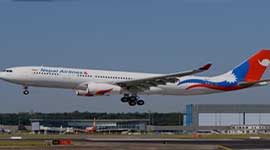
-
Day 2
Fly to Lukla (2,840m). Trek to Phakding (2,610m)
Wake up early in the morning and head to the the airport for a flight to Lukla. We take a packed breakfast today. After a short scenic flight to Lukla, we begin the trek, after meeting our local trekking staff. We reach Phakding today, located on the banks of Dhudhkoshi River.
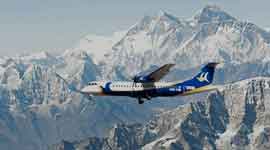
-
Day 3
Trek to Namche Bazaar (3,441m)
Following Dudh Koshi River and then a climb to reach Namche takes approximately 6 hours. We cross the river several times, encountering yaks and mules along the trail. Finally, the trail on the banks finish and we start ascending on steep gradient up, crossing the highest suspension bridge of Everest Region. The climb is steep, so we walk with a comfortable pace. Finally we reach Namche, the biggest town in the region.
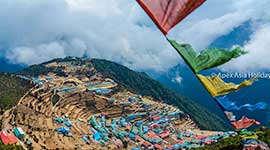
-
Day 4
Acclimatization day in Namche Bazaar (3,441m). Walk around the Namche Bazaar.
Today is a rest day of the trek. It is very important to take rest and acclimatize as we gain altitude. Today you will hike up to Syangboche and visit a museum that belongs to Sherpa culture, and the history records of Mt. Everest expedition by Tenzing Norgay and Sir Edmund Hillary, the first ones to scale Everest. The view of Namche, Khumjung village, and the massive summits in front are stupendous from Syangboche.
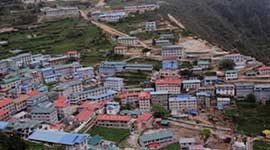
-
Day 5
Trek to Tengboche Hill. (3,880m)
After breakfast at the hotel, we head towards Tengboche, a superb hill for photography and Himalayan view. The monastery at Tengboche is one of the major highlights of Everest Base Camp standard trek. To reach Tengboche we need to walk for about 6 hours today, which includes a steep uphill bit on the second half of the day. In the evening, we walk around the Tengboche monastery and visit the monastery. Enjoy the beautiful evening with spectacular views at Tengboche Hill.
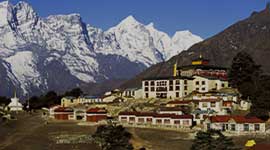
-
Day 6
Trekking to Dingboche Valley (4,350m)
After breakfast we trek down to Debuche and continue on to Pangboche, which is a major Sherpa settlement. Walking through the village, we get to see Mt. Ama Dablam towering us from the right, making a picture perfect setting for the village to be in. In fact, the mountain will be at a stone’s throw away from us as we walk. On undulating trails we cross a river and make a short climb up to Dingboche valley.
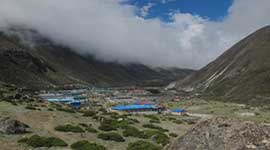
-
Day 7
Second Acclimatization day in Dingboche. Hike up to Nangkartshang Peak (5090m).
Today is the second rest and acclimatization day of this trek. After morning breakfast, we will walk around Dingboche. We hike up to Nangkartshang Peak (5090). It is an ideal for acclimatization. After returning from the day hike, we rest at the guesthouse and prepare for next day. Enjoy a hearty dinner in Dingboche.

-
Day 8
Trek to Lobuche (4,910m)
After breakfast in Dingboche, the journey to Lobuche begins. We pass Thukla Pass, which is also called Memorial Pass, as it has quite a few small stone memories and prayer flags to commemorate the loved ones who perished in Everest region. The trail today is easier than in previous days as it is on grassland. The view of Himalayas, Khumbu Valley, Cholatse Glacier Lakes, Thukla Pass and so froth make the walk really enjoyable. Once we reach Lobuche, we have lunch and take some rest, after which we walk up to the Khumbu glacier on the edge of Lobuche.
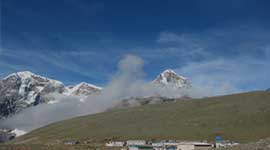
-
Day 9
Trek to Gorakshep (5170 m), continue to Everest Base Camp (5,365 m) then back to Gorak Shep (5170 m)
Today we walk to the main destination of the trek – Everest Base Camp. The rocky walk by the Khumbu glacier is quite rough and precarious on some bits, so do be careful. The first village we reach is Gorakshep where we have our lunch and continue to Everest Base Camp. On the way to Base Camp it is important to bring some snacks and water. Explore the Base Camp and return to the guesthouse which is about 5 hours up and down.
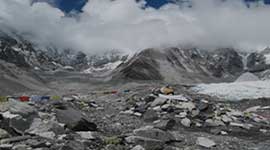
-
Day 10
Hike up to Kalapattar (5,555m) early in the morning and trek down to Periche (4,270m)
This is also a challenging day. Early morning we hike up the Kalapathar to catch the sunrise. As we climb up the mountains come to an eye level. We get a panoramic view of the Khumbu mountains from the top. This is also the highest point of the trek, from where we can see Mt. Everest, Mt. Nuptse, Mt. Pumori, Mt. Lhotse and many others peaks. You make an easy descent to Gorakshep and have breakfast before trekking down to Pheriche, a tiny hamlet at the base of Taboche mountain.
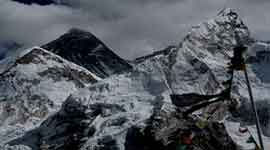
-
Day 11
Trek to Namche Bazaar (3,441m)
Our journey to Namche from Pheriche starts after breakfast. You will cross the village Pangboche and Imja Khola. A small climb up takes us to Tengboche, a hill station where sits the biggest monastery of the region. It is the only monastery that can be seen from the summit of Everest. After exploring the monastery trek down to Phungi Thanga and climb up to Sanasa. Finally on gradual ups we reach Namche Bazaar.

-
Day 12
Trek down to Lukla (2,840m)
After trekking for 10 days in the region, we make our way to Lukla which will be our final stop in Solukhumbu region. For lunch, we stop at Phakding, a village that lies on the banks of Dudhkoshi River.
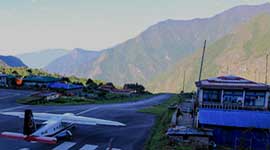
-
Day 13
Morning flight back to Kathmandu
This morning you will flight out from Lukla to Kathmandu, and upon arrival your guide transfers you to the hotel. A good rest after a long trek will be crucial. In the evening, you have leisure time to stroll around Thamel and do any souvenir shopping if you like.

-
Day 14
Transfer to the airport for your final flight departure
The trip concludes today. Your guide will drop you off at the international airport for your departure back home.

Itinerary Info
Standard Itinerary and Private Trip
It is the notice about Standard Itinerary and Private Trip. The provided itinerary is standard, and if you want to customize it, you can do it. OR you can go through our Plan Your Holidays page.Travel Insurance and Covers
We strongly recommend you have travel insurance that covers the adventure activities such as trekking/hiking above 15,000 feet. And must include flights delayed/canceled by bad weather, accidents, evacuations, etc.Keep in Mind
Sometimes, unusual weather changes, natural disasters, flight delays, and cancellations, government rules, local political situations, health conditions of trekkers may change your itinerary. At that point, our leading guide will decide and try to minimize the impacts and run the trip smoothly, but we are not liable for any additional costs if needed.Always options for Upgrade
Please you can upgrade your accommodation and transportation service to regular. We can provide you with 5Star hotel accommodation and the best available private car/ jeep services. And also domestic flights including the Helicopter Charter.
Lukla Flights:
All we know is that the Lukla flight is sensitive in the case of weather. Instantly it may be delayed and canceled as well. A tiny Himalayan airport has difficulty facing heavy traffic which is why sometimes the flight may be delayed. So, we suggest, if you are trekking in Everest, please make sure at least you have two days additional in the program. In the case of a weather cancellation, the best alternative to get Lukla is to charter a helicopter because the copter can fly in lower visibility of 1,500 meters. However, Twin Otter and Dornier aircraft need minimum visibility of 5,000 meters.What about the Helicopter cost? Is it getting instant or need to be in the queue?
A helicopter charges US $ 2500 per flight to Lukla from Kathmandu. And the US $ 500 per person on a sharing basis. Except for the emergency, during the high season and extreme weather of Lukla, you may not get a helicopter instantly or need to be in the queue. Also, if you have requested the Helicopter for less than 24hrs, you may need to wait because of the limited number of helicopters, and they’re using various activities in the mountains.Lukla flight from Manthli Airport, Ramechhap
Due to the air traffic in Kathmandu during the peak months (March, April, May, September, October, and November), CAAN has promulgated the notice that the flight has been shifted to Manthali from Kathmandu to Lukla. If there are changes will update you ASAP.Elevation Graph
Available Date
- Fixed Departures
- Private
Select a departure month
- January
- February
- March
- April
- May
- June
- July
- September
- October
- November
- December
What Includes & Excludes
Includes
- From and to airport transfer to hotel on a private tourist vehicle
- Two Nights hotel accommodation in Kathmandu in a Standard Hotel in BB plan
- An English speaking local guide
- Trekking Porters - We Assign a porter for each two trekkers.
- Kathmandu-Lukla-Kathmandu domestic airfare
- Accommodation, foods, insurance, salary, equipment, and medicine for field staffs.
- Trekking/tour permits, entrance fees.
- All ground transportion as per itinerary
- Farewell dinner one night before the client’s final departure in a typical Nepali Restaurant with culture dance. Your guide will accompany you.
- All government taxes and official expenses.
Excludes
- International airfare to and from Nepal.
- Visa fees and travel insurance.
- All drinks including bottled/boiled water along the trekking route
- Lunch and dinner in the city.
- Meals during the trek
- Tips for trekking staff (Tipping is expected).
- Personal trekking gears/equipment.
- Anything not mentioned in the price includes.
HOW ARE WE DIFFERENT?
We operate this trip with aiming:
- To improve the lifestyle of local people
- To protect the environment
- To respect and promote the culture of the local community
- To create the Volunteering Opportunities
- To donate 5% of each trip cost to the COSD Nepal organization
We hire the local people as trekking staff, which creates the opportunity to learn and share the cultures, get exposure to local traditions. You can enjoy the local product feasts in the teahouses and lodges that directly help their business.
- Namaste [Namaste is usually spoken with a slight bow and hands pressed together, palms touching and fingers pointing upwards, thumbs close to the chest] is the respectful greetings in Nepal.
- Walk-in clockwise direction around temples, monuments, MANE Stone, MANE-wall is the culture of Hinduism and Buddhism.
- Enter temples and with removing shoes and also leather.
- Ask permission to take any portrait of locals.
- Use right while giving and receiving food, eating, wiping mouth, etc.
- Please dress in loose-fitting clothes while entering temples and monasteries.
A small group of travelers led by the local trek leader, we try to minimize the impacts on natural resources and the environment during the trips. We emphasize reducing waste. Encourage travelers to use a refillable water bottle instead of a single-use bottle.
We are also a supporter of the Community Organization for Sustainable Development Nepal (COSD Nepal). And, we collect 5% of the total payment of each trek to contribute to the organization.
Volunteer Opportunity
We have a volunteer trip operating in a local school in Gorkha. Through this trip, you can directly support the children also the teachers’ educational status.
Add-on Activities
Guest Review
Brett Peters United Kingdom
I returned to Nepal to trek Everest after falling in love with the Himalayas and Nepal 9 years earlier. It was imperative to choose an ethical, professional and quality tour company to provide an ideal platform for me to achieve one of my dreams, see the summit of Mount Everest. The pre and post tour support was fantastic but more than matched admirably by my guide Gyanu and porter Ratna during the 7-day trek to Namche Bazaar. During the trek, Gyanu was professional, knowledgeable, enthusiastic and flexible when faced with challenging weather ensuring the trek was a success. I would recommend any other independent travelers or groups to Nepal to use Gyanu as their guide.
Linda Nguyen Australia
I have never thought of myself as a hiker or a trekker, but somehow, the idea of trekking through the Himalayas and venturing through Nepal and the worlds highest mountain seems exhilarating and almost out of reach. I did the trek to Mount Everest Base Camp in October 2014, and it was and still is one of the best experience in my life. We had Gyanu as our guide for the entire trip and not only has he been patient with a beginner trekker like me, he explained and shared with us his cultural heritage, his faith and his respect for the mountains.
Gyanu and his team always look out for our safety and comfort first. He was always humbled and considerate and would never push us beyond our limitations. I am thankful to the team, the porters and the guide that has made the trip so enjoyable and allowed myself to experience a magnificent place that they are proud to call home. I am looking forward to visiting Nepal again and I would gladly choose to organize my trip with Gyanu, this time, onto the Annapurna circuit.
Ben Combe Australia
In November 2014 I undertook the Everest Base Camp trek from Lukla with Gyanu as my guide. Guiding seven other Australians and me, Gyanu made the trek an absolute pleasure, ensuring every step of the journey was a safe and happy experience. By far and away this was the most rewarding multi-day trek I have ever done, though I would recommend any of the shorter activities as well. Walking in the shadows of the spectacular mountain of Ama Dablam for a number of days, as well as a dawn summit of Kalapathar would be the highlights. (See Photos)
Gyanu has many years experience trekking in the Sagarmatha/Everest region and is extremely knowledgeable about the surrounding mountains, their history, and Nepalese/Sherpa culture. The esteem in which Gyanu is held by his fellow Nepalese was evident on every day of the trek, where he was warmly greeted and embraced by both younger porters and more experienced guides coming from the opposite direction. I would attribute much of this warmth and respect to Gyanu s commitment to educating his porters and junior guides over many years, something that obviously seems to be appreciated.
Gyanu was very patient with our group of eight trekkers and made our health, safety and comfort his primary concern. In addition, Gyanu is very good at maintaining good morale in the group, his pre-dinner Nepalese singing skills never ceased to amaze our fellow trekkers in the various tea houses as we progressed into the mountains! I will never forget my Everest Base Camp experience and would thoroughly recommend Gyanu as a guide on any trek or activity offered. If I am ever lucky enough to return to Nepal I would make sure Gyanu was my guide!
Equipment List
Here you will get a basic idea of the equipment and items of clothing that you need to carry on the trip. Apex Asia Holidays provide you with a gratis duffel bag in Kathmandu to pack your trekking luggage.
Note:
- Non- trekking items can store at the Hotel lockers in Kathmandu.
- If you are trekking in Everest Region: Kathmandu- Lukla Flight only allows the 15KG including hand-carry bag.
- You must have to carry a down jacket from above 4000 meters to keep warms. You can hire a down jacket and sleeping bag for USD 30 with us.
Upper Body - Head / Ears / Eyes
- A cap to protect your ear and neck from sunlight
- Warm wool or synthetic hat
- Neck Warmer
- UV protective glaciers sunglasses - better to have side shield.
Hand
- A pair liner woolen gloves for mild days and heavy for morning and evening
Core Body
- Three cotton t-shirts
- Three synthetic t-shirt
- Two long sleeve polyesters, light colored shirts for sunny days.
- A soft shell jacket, water resistant, with insulation, underarm ventilation zippers. The full front zipper is preferable for ventilation.
- For women two synthetic sports bras, no cotton.
- Two pairs of nylon hiking shorts.
- Underwear, stay away from cotton.
- Two pairs lightweight long underwear.
Lower Body
- Two pair trekking pants, preferably that zip on/off at the knees.
Feet
- At least four pairs of liner socks, synthetic. And three pair heavyweight socks to be worn over liner socks.
- A pair of lightweight socks, a good option for the lower / warmer parts of the trail and also on lodges at the time of dinner.
- A pair light to medium weight waterproof hiking/trekking boots. Make sure the size and should have to be avoidable for blister.
- A pair light trekking shoes or sneakers to wear in and about camps or lodge.
- Shoes
Other Essential
- Small Day Pack
Medicine and First Aid
- Ibuprofen for general aches and pains
- Extra Strength Excedrin for altitude related headaches
- Immodium or Pepto bismol capsules for upset stomach or diarrhea
- Anti-infection ointments
- Band-aids
- Lip balm (At least SPF 20)
- Sunscreen (SPF 40)
Miscellaneous but Important
- Passport and extra passport photos (2 copies)
- Airline tickets
- Durable wallet/pouch for travel documents, money & passport
- Water bottle/bladder
- Water purification Iodine tablets
- Toiletries
Important Info
-
TRANSPORTATION
In Nepal, there are two kinds of transport, public and private. We mostly recommend you to use the private than the public because the roads two ways that make traffic, and the private vehicle can avoid the traffic by choosing the proper time for less traffic.
-
MEALS
In Nepal, you will get the extensive food menu. From the international food menu to local foods. Dal Bhat is the main course of Nepal. Your guide will help you to choose the suitable food, on the trek and tour.
-
ALTITUDE SICKNESS
Trekking is the popular trekking ventures in Nepal, which is always in the High Himalaya and where we have the chance to get altitude sickness. So, it is highly recommended to learn more about the High Altitude Sickness before you start the trek. Hurry can be deadly in Nepal Himalaya. Walk slow, and give enough time to your body to fit in the high altitude. Drinking more water and stepping slowly with rest is the best protection against altitude sickness.
-
INSURANCE
It is necessary to have travel insurance before you embark on any trip. The insurance policy should include the cost of medical expenses, any damage or loss of your luggage, and cancellation.
-
SAFETY
Nepal is one of the safe and more peaceful countries around the world. Even though you must have your Travel Insurance and the should cover the area which is on your itinerary.
-
RESPONSIBLE TRAVEL
Traveling is the way of getting in touch with the local peoples. It is important to recognize what is acceptable in the society, such as dresses, behaviors, and language. There might be different than your own country. Most of the people can communicate in English in the cities and also some touristy towns but if you have learned a few words Nepali, like greetings “Namaste” that make a huge difference.
-
HEALTH & SAFETY
Apex Asia Holidays always concern about the health and safety of the clients. Our guide carries a first aid kit with the directed medicine by the doctors. We also recommend you to discuss with your doctor about your visit at least a month ago. In case of severe or emergency, we transfer you to the nearest hospital. Safety is the first important for us as a responsible tour agency, so we do not take unnecessary risk.
Why Book With Us
- Great Value Guranteed
- Small Group Size
- Local Expert Guides
- Hassel-Free Booking
- Social Responsible
- Excellent Service
Frequently Ask Question
-
What is the time zone of Nepal?
NPT (UTC+05:45)
-
Do I need to tip the guide and porters? What is the standard tip?
Tips is expected by your team members and normally the standard is 10% of your total trip cost.
-
Do you arrange the International and domestic flights?
Yes, we can do as per clients’ require. Normally, we arrange all domestic flights and if you required we can arrange also international tickets.
-
Can I change my itinerary?
Yes, customizing the itineraries is the feature of Apex Asia Holidays. And you can also visit the Plan Your Holidays link.
-
Is it possible to extend trip?
Sure, you can extend your entire trip and also you can do extended trip.
-
Is it possible to use credit card during the trek/ tour?
Using card is not possible in all trekking town except Namche of Everest region. But in the cities you can use the cards.
-
Can I charge the batteries of cameras, phones?
Yes, you can charge your devices, but recommended you to bring your plugs, chargers and also do not leave unattended anything while charging in a lobby or somewhere in trekking guesthouse. And if you are in camping trek it’s quite hard to charge the phone so advising to bring portable charge.
-
Is there any possibility to communicate in my hometown?
Yes, you can. In the Everest and Annapurna region you can connect via Phone, Internet both is available in most of town and, in some remote routes you may need to use satellite phone that are carry by you trek guide or also get in the local town.
-
Do you provide any equipment for the trek?
Apex Asia Holidays provides you a basic equipment like Sleeping Bag, Down Jacket, for tea-house trek. And for the climbing trip we provide the basic equipment. For camping trek check it once including section.
-
Is the shower facility during the tour/trek?
Yes, you can have shower during the trek. In camping trek you will get shower in shower tent which is basically provide 3-4 times in whole trek it is depending on the duration of the trek. And in a tea-house trek we will provide you attached room where is possible and the rest of town you will payable shower.
-
What are the accommodations and meals like?
All the meals that you provided are hygienic and fresh. While you are in camping trek you get meals prepared by professional camping cook. And if you are doing tea-house trek you will get the main course as like in the cities. For accommodation in the camping trek you will have a tent with good qualities mattress and sleeping bag. And if you are in tea-house trek you will normal twin sharing room in basic facilities with warm mattress and blanket, and also we provide sleeping bag if you need.
-
Is the drinking water okay? Or I need to use tablets?
For drinking water you can buy bottle water that purified mineral water in tea-house trek and city tour. And in camping trek the camping cook provides you boiled water. For some case of remote area trekking it would be better to have some purification tablets that you can buy in Kathmandu.
-
How big is a group size?
We will try to arrange small group of willing people, which immortalized the treks. Normally we encompass 12 -16 people in a group. (This is not to apply for them who want to do Private Trip, no minimum and maximum for them.)
-
Do you arrange the private trip?
Yes, of course we will arrange private tour.
-
Should I need to join the group?
Joining in a group is depending on your booking and option that you choose. If you have booked for Private Trip then obviously you will not join. Otherwise normally the same trip is departing in a same day then the group will join.
-
Are the staffs insured of your company?
Yes, all of the staffs and crew members are the insured.
-
What sort of ground transportation you use?
Normally we assign a car up to 2 people and Jeep for up to 5 people and then Micro Bus for up to 14 PAX and Coster and Sutlej Bus depending on group size. There are some trekking routes, which are dirt road for them we assign 4WD Jeeps. It also depends on what services you opt.
-
Are the treks and tours secured? What about the security?
Provide the security to our clients is principal of us. The government licensed holder guides and other crew members are carefully assign for your trip. Even though, would like to counsel you to take care of your personal equipment, bags. If you doing a tea-house trek your accommodation are in a local guesthouse, where you have to be precaution yourself at all time. And if you are in a camping trek always keep your own bags inside the tent and while in nighttime please keep your bag in the middle of the tent. The camping leader assigns a Sherpa as a guard throughout the nighttime.
-
Do my guide/porter speak English?
Definitely they speak English. All the guides are professional and due to the professionalism they speak good English. The guide’s English is enough to explain about the local culture, activities, and religions.
-
Do you peak me up at the Airport upon my arrival?
Yes, our airport representative welcomes you at airport and transfer to the hotel in a private tourist vehicle.
-
What is the fitness required for the treks?
Generally, to trek in Nepal we should have good physical and health condition. And also able to walk 4- 7hrs in day at high altitude with your little backpack.
-
When is the best season for treks in Nepal?
From March to mid of June and September to December is the best season for treks.
Why travel with apex asia holidays
Since 2015, we have operated unique itineraries and happy trips that are a once-in-a-lifetime experience. We focused on the fun factor and challenged you aptly to reach that great feeling of personal accomplishment while enjoying the company of like-minded travelers.
Make your journey fruitful by choosing to travel with a local company. We know each holiday is different. With the guidance of our travel experts and first-hand experience, we can customize every element of your holiday. We create travel packages that transcend our clients’ expectations. We invite you to discover what you’ve been missing. These are some of the difference that makes All-Travel unique.
Explore More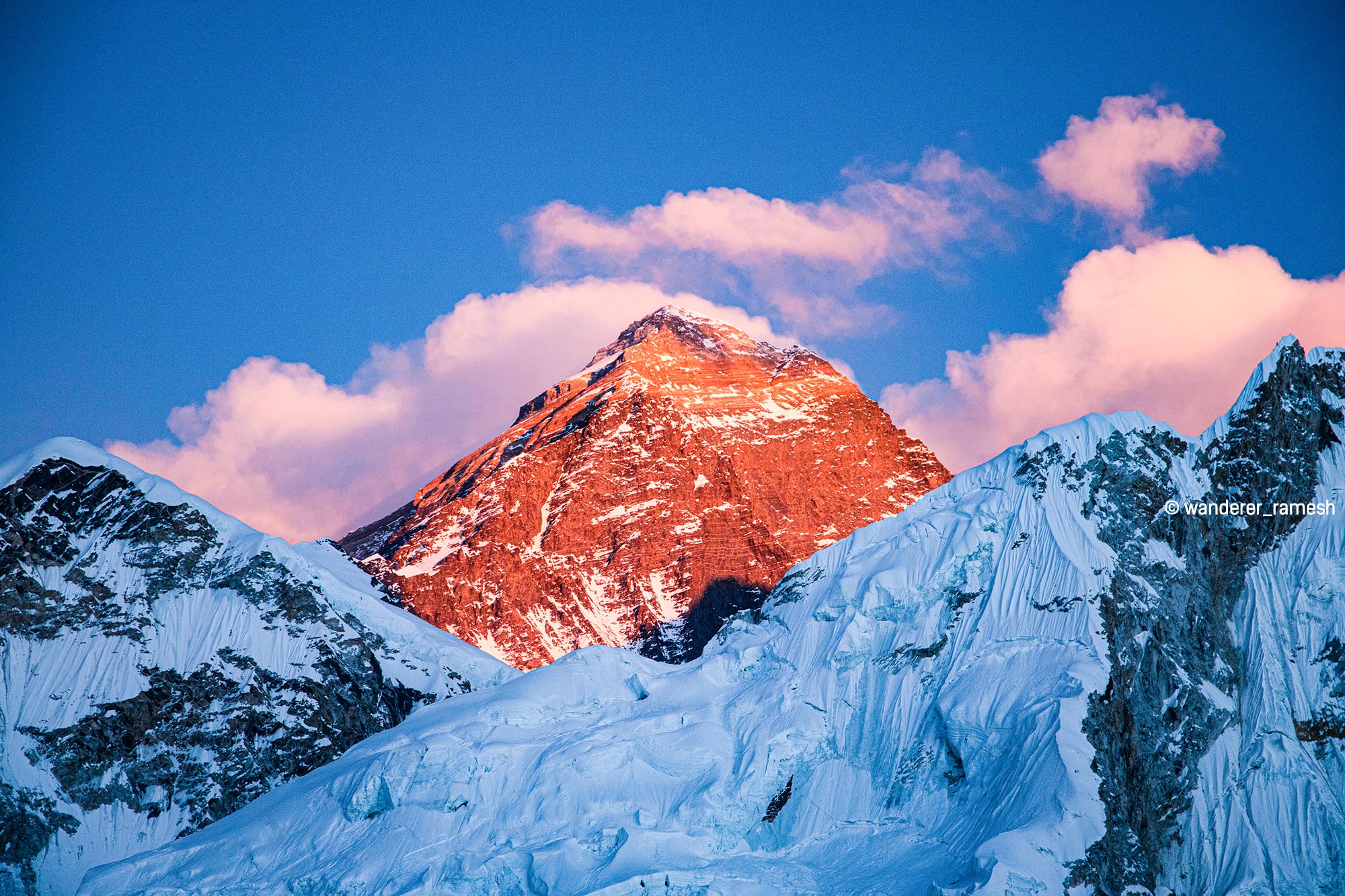
 Group Size:
1
Group Size:
1  Duration:
14 Days
Duration:
14 Days 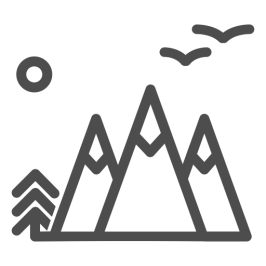 Max Altitude:
5555m
Max Altitude:
5555m  Trip Grading:
Moderate
Trip Grading:
Moderate  Trip Start:
Kathmandu
Trip Start:
Kathmandu  Trip End:
Kathmandu
Trip End:
Kathmandu  Average Dist. per Day
12.36 KM / 7.68 MILE
Average Dist. per Day
12.36 KM / 7.68 MILE  Average Time per Day
6hrs
Average Time per Day
6hrs 